Johns Hopkins UniversityEst. 1876
JH 150America’s First Research University
Academic Kudos
The exceptional work of Johns Hopkins University School of Medicine faculty and trainees is frequently recognized with honors and awards. These range from Nobel Prizes to medical-society honors to graduate student fellowships.
Congratulations to the honorees!
2025 Honorees
-

Hal Dietz, M.D., the Victor A. McKusick Professor of Pediatrics, Medicine and Genetics in the Department of Genetic Medicine, has received the 2025 Lifetime Achievement Award from the American Society of Human Genetics. The award recognizes substantial and far-reaching scientific contributions to human genetics. Dietz is recognized for his work on Marfan syndrome and related connective tissue disorders. Through his research, he has identified the genes for multiple syndromic presentations of vascular connective tissue disorders, including Marfan syndrome, Loeys-Dietz syndrome and Shprintzen-Goldberg syndrome. Patients with these conditions are prone to developing aneurysms at the root of the aorta, the major artery that carries blood away from the heart and to the rest of the body. Aneurysms occur when a blood vessel’s diameter grows 50 percent larger than its usual size, and causes the artery to bulge and enlarge, leading to potentially life-threatening tears or rupture. Previously, Dietz's group targeted cellular signaling pathways to prevent aortic aneurysms from forming. This work revealed new and unanticipated strategies for therapies that were subsequently validated by clinical trials and are in widespread clinical use — redefining the field. -

Sarah Conway, M.D., an assistant professor of medicine, has been named a Rising Star 2025 by Modern Healthcare, a business publication and media company that focuses on the healthcare industry. This prestigious recognition celebrates the outstanding contributions of women across the healthcare industry, highlighting their efforts in improving care delivery, promoting health equity, shaping policy, and advancing gender equality in healthcare leadership. Conway serves as chief medical officer of the Johns Hopkins Clinical Alliance. Her areas of clinical expertise include internal medicine and hospital medicine. Her research interests include value-based care, complex care coordination, and Federally Qualified Health Center partnerships.
-
Erica Shelton, assistant professor of emergency medicine and an emergency medicine physician, has been chosen as one of 57 scholars to join the 2025 class of Presidential Leadership Scholars (PLS), a partnership among the presidential centers of George W. Bush, William Clinton, George H.W. Bush and Lyndon Johnson. The 10th annual class is comprised of accomplished leaders, including educators, physicians, public servants and corporate professionals, selected as scholars based on their leadership growth potential and personal projects designed to address a problem or need in their community, the nation or the world. Shelton’s community engagement outreach and research focus on optimizing health care access for vulnerable populations to decrease health disparities and enhance the value and efficiency of emergency care. Her research also focuses on enhancing patient-practitioner communication, particularly among urban populations and communities of color, to address barriers to follow-up care and self-management.

-
Alexander Chern, neurotology and skull base surgery fellow at The Johns Hopkins University, has been named a member of the 2024 STAT Wunderkinds cohort. This accolade recognizes impressive early-career scientists, doctors and researchers who are not yet program leaders. Winning nominees are selected by STAT’s editorial staff based on their inspiring stories and innovative research. Chern’s research focuses on the intersection of music, hearing and cognition, and how music affects a person’s health and behavior, especially regarding hearing loss. Read more about Chern’s story, click here.

-

Jean Fan, an assistant professor of biomedical engineering and a faculty member in the Johns Hopkins University's Center for Computational Biology, is among nearly 400 recently announced recipients of the Presidential Early Career Award for Scientists and Engineers (PECASE). PECASE is the highest honor bestowed by the U.S. government on outstanding scientists and engineers early in their research careers. Fan was nominated by the National Science Foundation for her research on how molecular and spatial factors shape cellular identity and diversity. Fan directs the JEFworks Lab, which develops new open-source computational software for analyzing spatially resolved omics data that can be tailored and applied to diverse biological systems. By creating new tools to analyze these complex data sets, her lab is shedding light on how molecular variations between cells influence disease progression and prognosis. To read more about Fan’s achievement click here.
-

Casey Taylor, Ph.D., an associate professor of biomedical engineering and medicine and the associate director of the Institute for Computational Medicine, is among nearly 400 recently announced recipients of the Presidential Early Career Award for Scientists and Engineers (PECASE). PECASE is the highest honor bestowed by the U.S. government on outstanding scientists and engineers early in their research careers. Taylor was recognized for her work bringing together biomedical informatics, biomedical data science, and comparative effectiveness research methods to study effective ways to incorporate digital health technologies into clinical research and clinical care, particularly in delivering guidance for genomic medicine practice. Taylor was nominated for the PECASE by the National Institutes of Health, which recognized her in 2020 with its award to support early-career genomics investigators, the NHGRI Genomic Innovator Award, and in 2022 with an Award for Excellence in DEIA Mentorship. To read more about Taylor’s achievement click here.
-

Michael Piacentino, Ph.D., an assistant professor of cell biology, is the recipient of the 2025 H.W. Mossman Award in Developmental Biology, given by the American Association for Anatomy. Piacentino's award is for his studies on the mechanisms regulating cell migration. The American Association for Anatomy is the professional home for more than 2,500 students, teachers and researchers of the anatomical sciences in nearly 60 countries around the world. To read more about the award, click here.
-
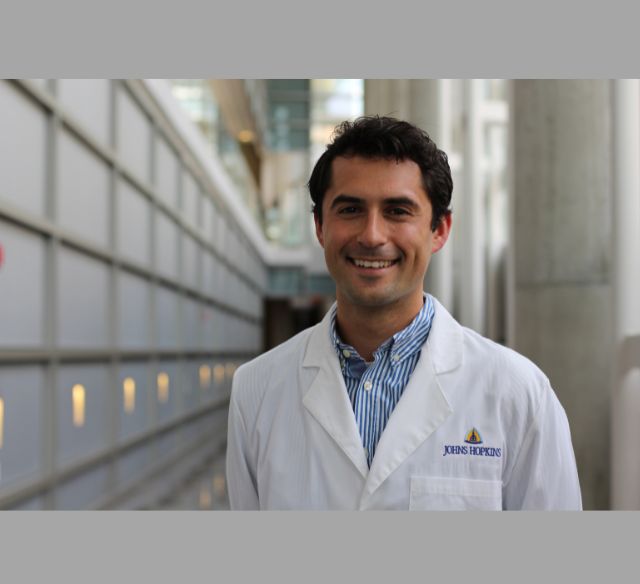
Jared Tangeman, a Johns Hopkins Medicine postdoctoral research fellow, has been named a Howard Hughes Medical Institute Hanna Gray Fellow. Tangeman, a scientist in the lab of neuroscientist Seth Blackshaw, is researching mechanisms of retina regeneration that can be used to combat blindness. While humans cannot replace damaged retinal neurons, many salamanders can regenerate functional retinal neurons after injury. Tangeman is investigating retina regeneration in salamanders to identify the evolutionary innovations that control injury-induced neurogenesis. By applying these findings to the mammalian retina, he hopes to improve cell therapies designed to combat blindness. To read about the selection of Hanna Gray Fellows, click here.
2024 Honorees
-

Arik Marcell, M.D., M.P.H., an adolescent medicine specialist at Johns Hopkins Children's Center, has been awarded a Johns Hopkins University 2024 Career Impact Award. The awards, established in 2021, celebrate "unsung heroes" who have shared their time, expertise and connections to support the professional and career growth of others through mentorship and unwavering commitment to diversity, equity and inclusion. Marcell, who was nominated by a mentee, was recognized in the awards' faculty and staff category for his impact on professional development of students and trainees.
-

Ulrich Müeller, Ph.D., a professor of neuroscience, has been awarded the Grand Prix Scientifique by the Fondation Pour l'Audition. The award "recognizes the work of a scientist or doctor who has made a major discovery in the field of hearing, opening up new perspectives for all," according to the Fondation. Müeller won the award for his studies on how cells in the ear transform sound into electrical signals that can be interpreted by the brain. The work by Müeller and his lab has paved the way for the development of therapies for genetic deafness. The Grand Prix endowment will allow Müeller to strengthen his scientific collaborations in France, with sabbatical stays intended to develop synergies with local researchers.
-

Vivek Jani, an M.D./Ph.D. candidate, has won the American Hospital Association 2024 Samuel A. Levine Early Career Clinical Investigator Award for a project titled "Distinct Echocardiographic Signatures Predict Mortality in Scleroderma Pulmonary Vascular Disease." His primary faculty mentor for the work was Monica Mukherjee, M.D., M.P.H. The award recognizes and rewards innovative clinical research by early career investigators and trainees and promotes careers in clinical cardiovascular investigation. Funding for Jani's work was provided by the National Scleroderma Foundation and the National Institutes of Health/National Heart, Lung, and Blood Institute.
-

Thomas Smith, M.D., a professor of oncology, director of palliative medicine for Johns Hopkins Medicine and the Harry J. Duffey Family Professor of Palliative Care, has received a Lifetime Achievement Award from American Academy of Hospice and Palliative Medicine. The award recognizes outstanding contributions and significant publications that have helped shape the direction of the field of hospice and palliative care. Smith received the award for his transformative impact on palliative care, leadership in oncology and unwavering mentorship. As director of palliative medicine for Johns Hopkins, he expanded the palliative care division from a modest two-clinician service to a full-fledged academic division with a thriving fellowship program, grant-funded researchers, and quality care access for patients and families across the Johns Hopkins network.
-

Padmini Ranasinghe, M.D., M.P.H., an assistant professor of medicine, was inugurated as the 177th president of MedChi, the Maryland State Medical Society, at its 225th annual meeting, held on Oct. 26, 2024. Ranasinghe had been an active MedChi member for more than 15 years She has also served on many committees of importance to the mission of MedChi. At Johns Hopkins School of Medicine, Ranasinghe is a clinician, educator, and researcher, serving as the co-director of education in the Division of Hospital Medicine. She mentors medical students, residents and public health students, and she has wide-ranging research interests spanning the health and wellness of medical trainees and physicians, disaster medicine, climate health, global health, chronic disease prevention, value-based care and health informatics. In her role as president of MedChi, Ranasinghe recognizes the importance and timeliness of engaging with the wider discussions on Artificial Intelligence and related technologies. “As physicians, it is crucial for us to continuously engage with technological developments affecting healthcare to better serve our patients," she says.
-

Dawn M. LaPorte, M.D., professor of orthopaedic surgery, has been chosen as a director-elect of the American Board of Orthopaedic Surgery (ABOS). The ABOS board of directors consists of 21 members, which includes 12 active directors, six senior directors, two directors-elect and one public member director. ABOS board members serve one 10-year term while the public member director serves a three-year renewable term. Nominations to the board come from the American Orthopaedic Association, the American Academy of Orthopaedic Surgeons and the American Medical Association. LaPorte specializes in surgery of the hand. She has been vice chair of the Department of Orthopaedic Surgery at Johns Hopkins Hospital since 2013 and residency program director since 2008. An active researcher, LaPorte has written approximately 200 peer-reviewed articles and book chapters. She has served in leadership roles for many orthopaedic societies and co-founded Women of Orthopaedics Worldwide. LaPorte earned her M.D. degree and completed her residency training at the Johns Hopkins University School of Medicine. She completed a hand fellowship at The Raymond M. Curtis National Hand Center.
-
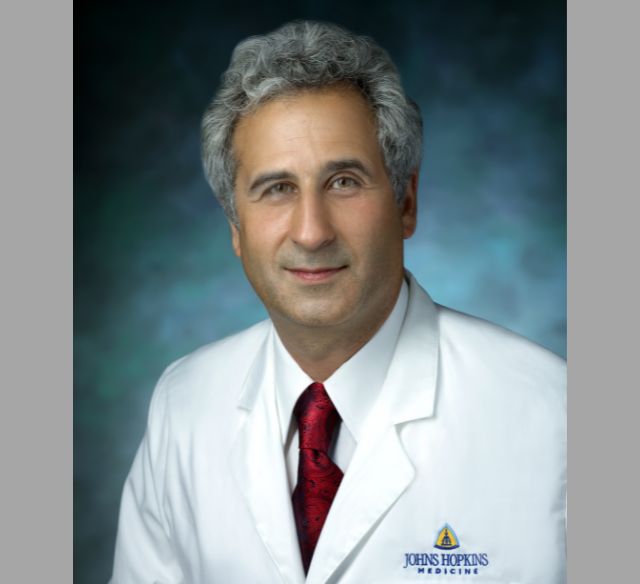
Ahmet Baschat, M.D., director of the Center for Fetal Therapy and professor of gynecology and obstetrics, has been awarded the Ian Donald Gold Medal from the International Society of Ultrasound in Obstetrics and Gynecology (ISUOG). This is the society’s most prestigious award and is reserved for one individual who has made a significant scientific contribution to the advancement of diagnostic ultrasound in obstetrics and gynecology. Baschat’s work has changed the way ultrasound is practiced around the world through his research or innovation. ISUOG is a charitable organization and the leading international society of experts in ultrasound for obstetrics and gynecology. They have members in more than 140 countries.
-

Jeremy Nathans, M.D., Ph.D., professor of molecular biology and genetics, is one of two winners of the World Laureates Association Prize for his discoveries of the genes, regulation and plasticity underlying human color vision and revealing disease mechanisms leading to blindness. Read more about the prize here.
-
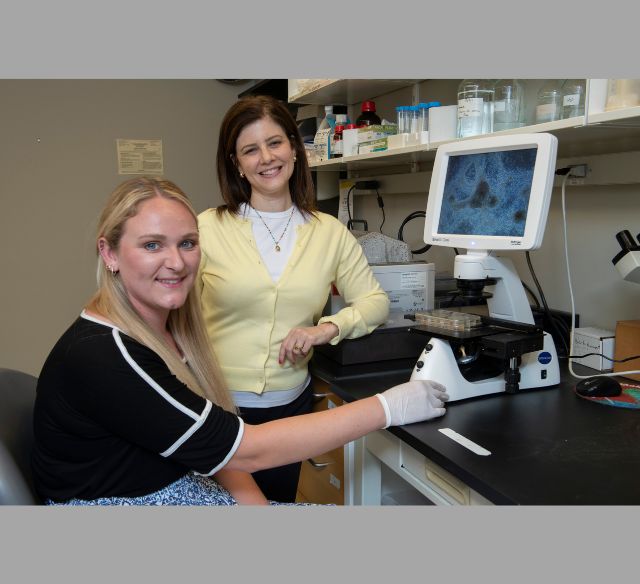
Olivia Sniezek-Carney, Ph.D. (seated), a postdoctoral fellow in the Department of Genetic Medicine lab of Hilary Vernon, M.D., Ph.D., has been named a member of the 2023 class of Hartwell Fellows by the Hartwell Foundation. The organization provides funding to U.S. citizens for postdoctoral training in biomedical science at select research institutions in the United States. The fellowships offer support for two years at $50,000 direct cost per year to support scientists in the early stages of biomedical research careers by enabling them to pursue further specialized training as part of their professional development.
-

Ada Hamosh, M.D., M.P.H., the Frank V. Sutland Professor of Genetics in the departments of Genetic Medicine and Pediatrics, is one of eight winners of the American Society of Human Genetics' 2024 professional awards, which honor outstanding scientific achievements in genetics and genomics education, mentoring and application of research for the common good. Hamosh receives the society's Education Award for the creation of widely used educational resources for geneticists, physicians and patients around the world. To learn more about Hamosh’s work, click here
-
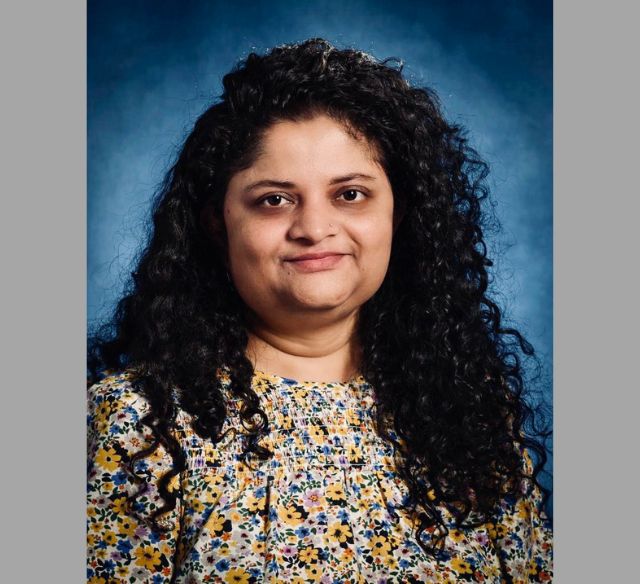
Seema Banerjee, a post-doctoral research fellow in the Glaucoma Division of the Wilmer Eye Institute, has been accepted into the 2024 Emerging Vision Scientist Program, hosted by the National Alliance for Eye and Vision Research. This honor recognizes her exceptional contributions to the field of vision research and provides an opportunity for her to advocate for the future of eye health. Working in the lab of Pradeep Ramul, M.D., Ph.D., Banerjee investigates the implementation and effects of various physical activity interventions on patients with glaucoma, exploring the impact of exercise on the functional and vascular physiology of the eye. The Emerging Vision Scientist Program brings together some of the brightest minds in vision science. Participants (35 in all) will spend two days (Sept. 16-17) engaging with policymakers on Capitol Hill, sharing their groundbreaking work and advocating for crucial funding. The program is vital for fostering innovation and ensuring continued progress in preventing, treating and curing eye diseases.
-
Helen Hughes, M.D., medical director of the Johns Hopkins Office of Telemedicine, in collaboration with the Johns Hopkins Telemedicine Equity Working Group, has received a 2024 Telehealth Equity Catalyst Award from the Association of American Medical Colleges (AAMC) for the project "Improving Digital Access and Equity in East Baltimore Through Coalition Building and Simulation Training." This collaborative project with the Johns Hopkins Office of Government, Community and Economic Partnerships, the Johns Hopkins University School of Nursing and Epic/Verona includes piloting a community-based MyChart training simulation. Johns Hopkins and winners from four other health systems were each awarded $27,000 for innovative programs that seek to advance health equity via telehealth and technology. This is the third year in a row that the Office of Telemedicine and colleagues have won an AAMC Telehealth Equity Catalyst Award.

-

Johns Hopkins Bayview Medical Center physicians Avinash Ganti, M.D. (left), Thomas Reifsnyder, M.D., have been recognized by Newsweek as among America's Best Vascular Surgeons in 2024. Newsweek and Statista (a consumer data firm) surveyed physicians and other medical professionals with knowledge about the field of vascular surgery. Reifsnyder and Ganti were among 200 vascular surgeons nationwide who were recognized based on four data sources – physician performance data, online surveys by state, quality scores and certifications.
-

Linda Resar, M.D., professor of medicine, oncology and pathology, has received the Lustgarten Foundation's 2024 Innovation and Collaboration Program grant for her study “Targeting HMGA1 Tumor-Stromal Signaling Networks in Pancreatic Cancer.” The program is intended to attract new talent and new approaches to pancreatic cancer research by funding high-risk, high-reward projects addressing key outstanding questions. “Lustgarten’s generous funding will allow my team to reveal new paradigms for the causes of pancreatic cancers and identify novel approaches to treat or prevent tumor progression,” says Resar. “Pancreatic cancer remains a highly lethal cancer type and we are committed to advancing research with the potential to save lives.”
-

Mariah Robertson, M.D., M.P.H, assistant professor of medicine, is the winner of the American Geriatric Society's 2024 Outstanding Junior Clinician Educator of the Year Award. The award is targeted to an society member who is a clinician-educator junior faculty (assistant professor/instructor) in the development stages of his or her career. The awardee must have made a significant contribution to the education and training of students/trainees in geriatrics and the progress of geriatrics education in health professions schools. Robertson is the associate program director of the Geriatric Medicine Fellowship at Johns Hopkins University. Focused on improving learner understanding of care for homebound and home-limited older adults, she has become recognized as an expert in geriatrics and home-based care education. She has been honored with several teaching awards, including the Most Innovative Teaching Presentation from the John Hopkins Department of Medicine Teaching Competition in 2019, the Patrick Murphy Resident Teaching Award from Johns Hopkins Bayview Internal Medicine Residency in 2018, and she was inducted, as an internal medicine resident, into the Distinguished Teaching Society of Johns Hopkins School of Medicine in 2018.
-
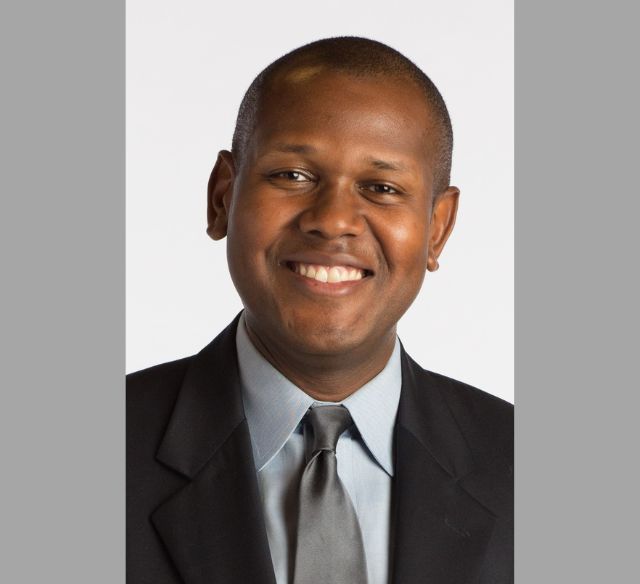
Thomas K.M. Cudjoe M.D., M.P.H., assistant professor in the Division of Geriatric Medicine and Gerontology, has been named a Harold Amos Scholar by the Robert Wood Johnson Foundation. Since its founding in 1983, the Harold Amos Medical Faculty Development Program has promoted scholars who have assumed international research excellence in biomedical, clinical and health services research. These scholars have attained high levels of academic leadership and served as role models for future generations of investigators. Through this four-year award ($420,000), Thomas, with the support of his mentorship team (Cynthia Boyd, Sarah Szanton, Carl Latkin, Roland Thorpe and Joe Gallo), will adapt and implement CAPABLE (Community Aging in Place — Advancing Better Living for Elders), an existing evidence-based program, to a new target population in the context of home-based primary care.
-
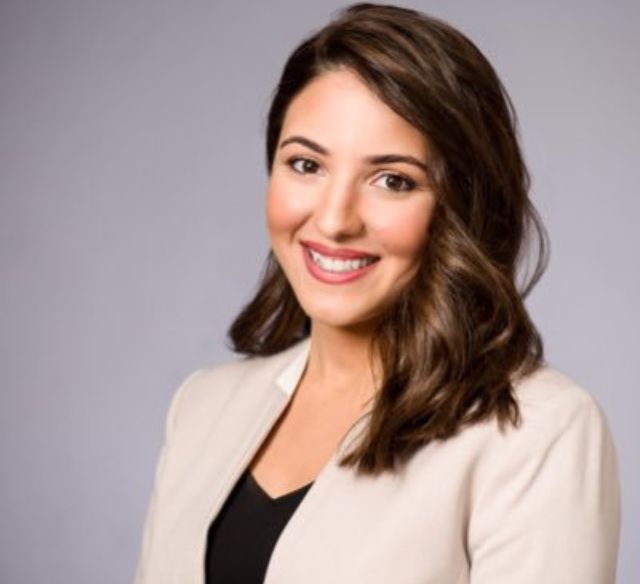
The PhRMA Foundation has awarded a $500,000 grant to Nino Isakadze, M.D., M.H.S., to conduct research using digital health technologies to improve health equity and health outcomes for patients. Isakadze, a clinical cardiac electrophysiology fellow and an incoming faculty at the School of Medicine, will lead a team project to test a digital health intervention for the management of atrial fibrillation (Afib), the most common type of heart arrhythmia. “Receiving the PhRMA Foundation grant will allow us to generate robust evidence to support the use of digital health technologies [including a watch to track heart health data] to enable risk factor modification for diverse patients with Afib and bridge the critical gap in Afib management,” Isakadze said.
-
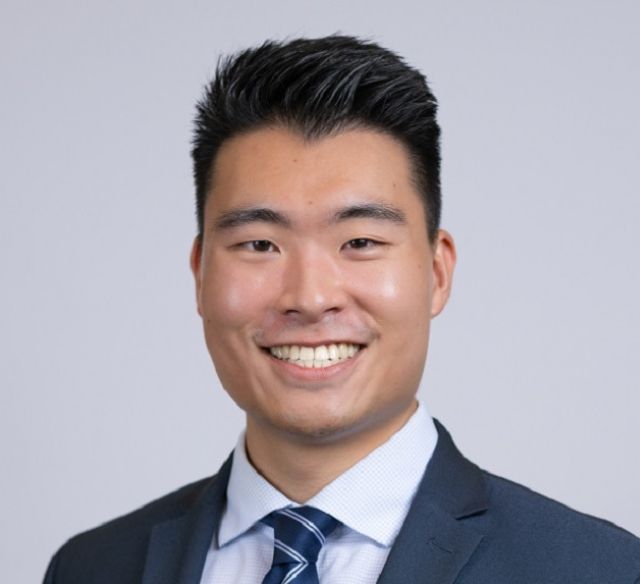
Terrence Tsou, a scholar at the Johns Hopkins Institute for Clinical & Translational Research, has received the 2024 Outstanding Trainee: Predoctoral Scholar Award from the Association for Clinical and Translational Science (ACTS), a non-profit membership association of translational scientists from the nation’s leading academic medical centers. The award recognizes achievement in translational research at the predoctoral level with emphasis on transformational scientific potential. Tsou is an M.D. candidate who, with his mentor, Caitlin Hicks, a vascular surgeon in the Division of Vascular Surgery and Endovascular Therapy, has examined practice patterns around the use of peripheral vascular interventions by procedural site of service for peripheral artery disease. This topic has high potential for near-term impact on care, policy and practice.
-
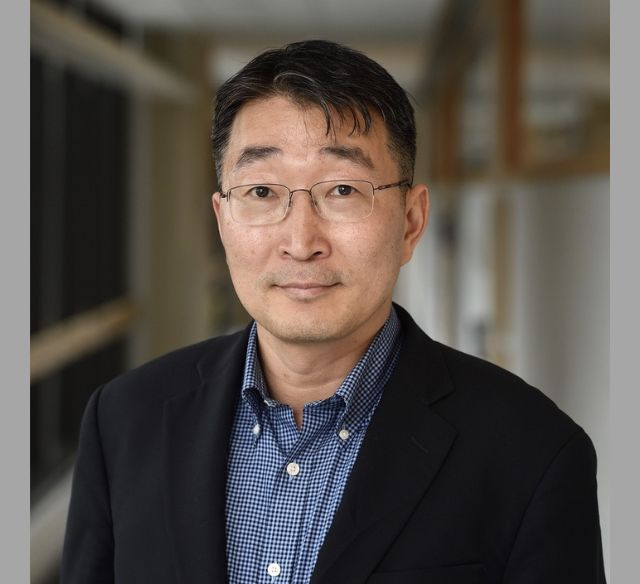
Deok-Ho Kim, Ph.D., a professor of biomedical engineering, has been inducted into the American Institute for Medical and Biological Engineering's College of Fellows. Election to the College of Fellows is among the highest professional distinctions accorded to medical and biological engineers, comprised of the top 2 percent of engineers in these fields. College membership honors those who have made outstanding contributions to "engineering and medicine research, practice, or education” and to "the pioneering of new and developing fields of technology, making major advancements in traditional fields of medical and biological engineering or developing/implementing innovative approaches to bioengineering education." Kim was nominated, reviewed and elected by peers and members of the College of Fellows “for outstanding contributions in developing microengineered biomaterials, advanced biofabrication technologies, and human microphysiological systems.”
-
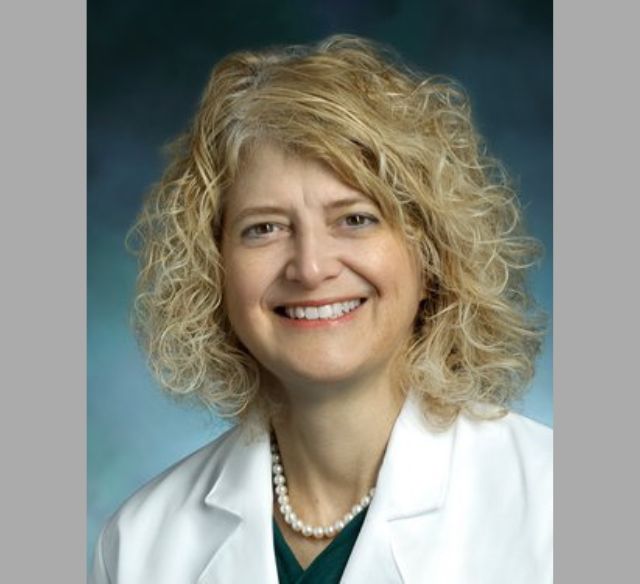
Shenandoah "Dody" Robinson, M.D., a professor of neurosurgery, has been named president-elect of the American Society of Pediatric Neurosurgeons, the senior organization of pediatric neurosurgeons in the world. Robinson, a nationally recognized expert in the treatment of pediatric epilepsy and spasticity, is the first woman to hold this position. She is also president of the American Academy of Neurological Surgery, the senior organization of neurosurgeons worldwide. She is also the first woman io hold this position.
-
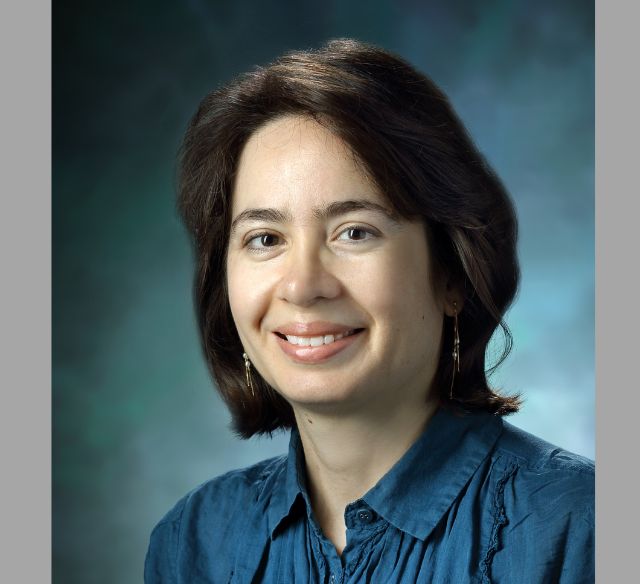
Andreia Faria, M.D., Ph.D., an associate professor of radiology and radiological science, was one of three finalists in the competition for the 2024 President’s Frontier Award. She was recognized for her work toward developing tools for scientific and medical communities that will help them access and use large, complex data sets. The annual, university-wide competition awards faculty who demonstrate significant scholarly achievement and show exceptional promise for important future work. The $250,000 award recognizes one researcher each year for ten years with funding for research expenses. Faria and the other finalists will receive substantial funding for their work.
-

Suchi Saria, Ph.D., M.Sc., has been named to the board of directors of the Coalition for Health AI, a new, nonprofit entity in healthcare IT with more than 1,200 participating members including various federal agencies. She is one of the founders of the coalition, the goal of which is "to welcome a diverse array of stakeholders to listen, learn, and collaborate to drive the development, evaluation, and appropriate use of AI in healthcare." Saria holds a John C. Malone endowed chair with joint appointments in medicine and health system informatics at the Johns Hopkins University School of Medicine, computer science and statistics at the Whiting School of Engineering, and health policy and management at the Bloomberg School of Public Health.
-
Anum Minhas, M.D., M.H.S., assistant professor of medicine in the cardiology division and director of the cardio-obstetrics program, has been awarded the Mentored Patient-Oriented Research Career Development Award (K23) from the National Heart, Lung and Blood Institute. The research grant will support a study looking into the role of pre-pregnancy cardiometabolic risk factors (hypertension, obesity, diabetes) regarding preeclampsia and long-term cardiovascular risk. Using a life course approach, the research Minhas will lead includes identifying preeclampsia subtypes, assessing the impact on coronary function postpartum and determining associations with cardiovascular events 10 years later, aiming to inform preventive strategies.
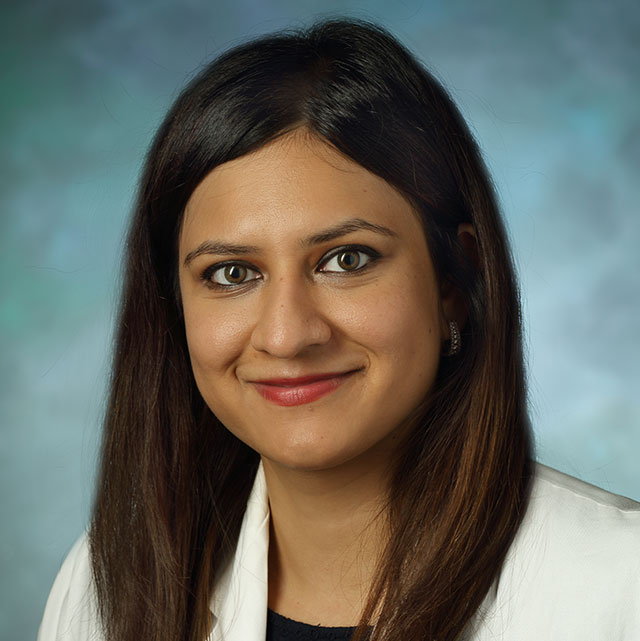
-
Sara Johnson, Ph.D., M.P.H., director of the Rales Center for the Integration of Health and Education, has been named a member of the American Pediatric Society (APS). Founded in 1888, APS is North America’s first academic pediatric organization. Members are recognized child health leaders of extraordinary achievement who work together to shape the future of academic pediatrics. Current members nominate new members by recognizing people who have distinguished themselves as child health leaders, teachers, scholars, policymakers and clinicians. Johnson is the Blanket Fort Foundation Professor in Pediatric Population Health and Health Equity Research. She is also director of the general academic pediatrics fellowship program, and she has joint appointments in the Department of Population, Family and Reproductive Health and the Department of Mental Health at the Bloomberg School of Public Health. Johnson and other new APS members will be recognized during the Pediatric Academic Societies meeting in May 2024.
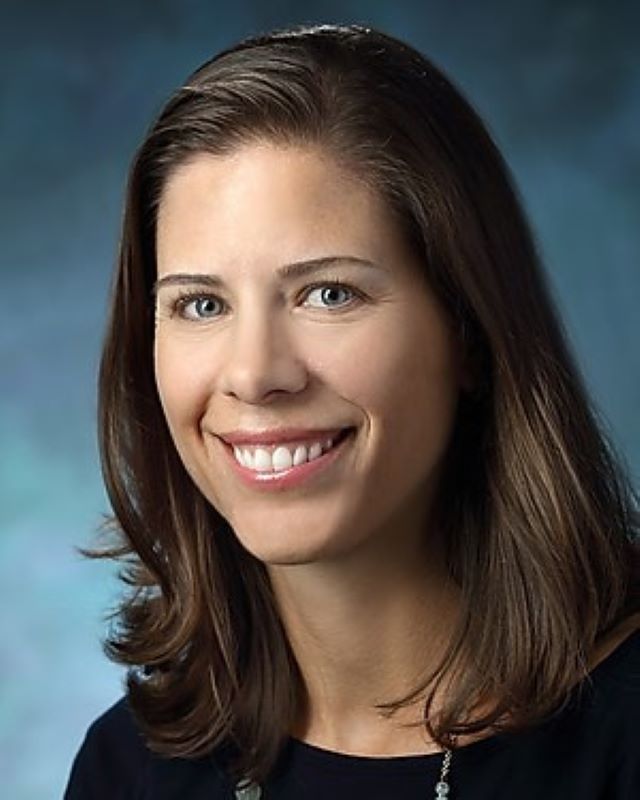
-
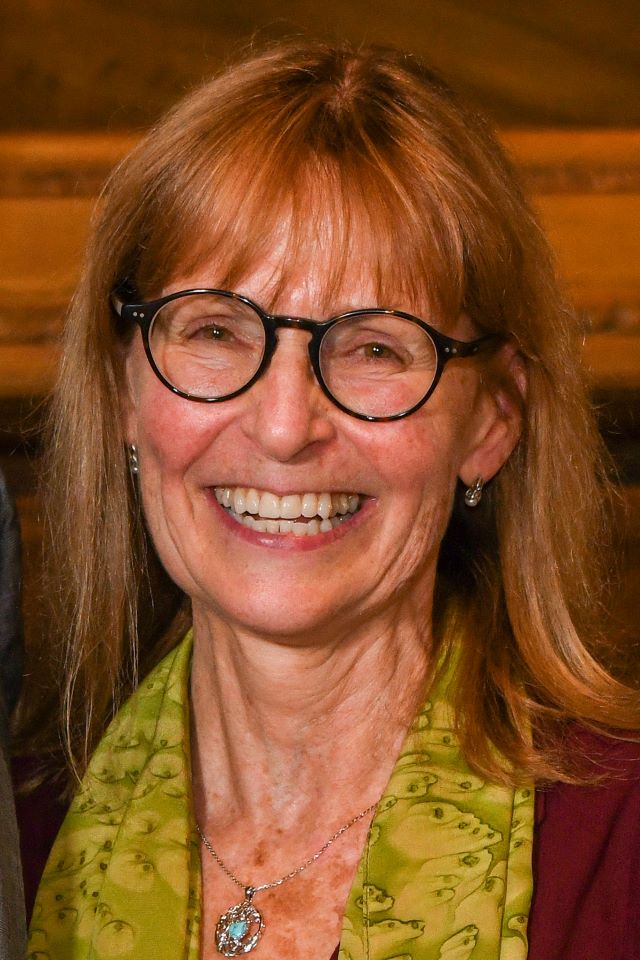
Deborah Andrew, Ph.D., a professor of cell biology, has received a Lifetime Achievement Award from the Society of Developmental Biology. Andrew studies how “tube” organs (salivary glands, trachea) form in a fruit fly, which may give insights to human development and disease. For more information about the award, click here.
2023 Honorees
-
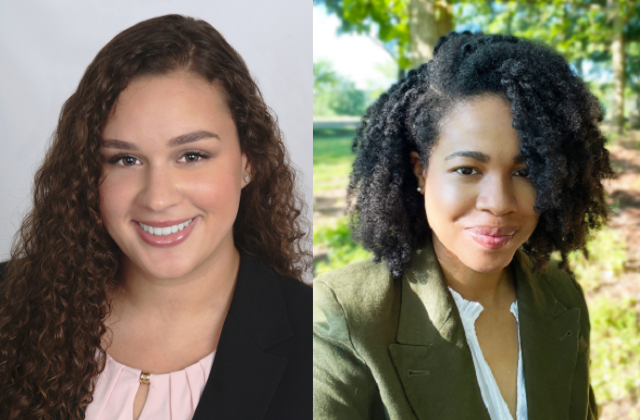
Graduate students Eleana Parajón (pictured left) and Bonita Powell, and their advisers, Douglas Robinson and Mollie Meffert, have been named Gilliam Fellows by the Howard Hughes Medical Institute. The Gilliam Fellows Program invests in graduate students and their advisers who embody leadership in science and who are committed to advancing equity and inclusion. Each student-adviser pair receives an annual award totaling $53,000 for up to three years. “I am very passionate about the important role diversity plays in our world, particularly in the biomedical research field,” Parajón says. "I am deeply committed to championing diversity and representation in biomedical research, recognizing their critical role in serving our communities," Powell says.
-
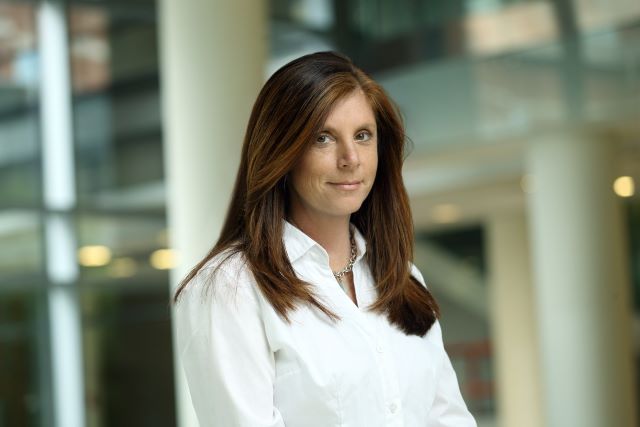
Pamela Johnson, M.D., vice president of care transformation at Johns Hopkins Health System and professor of radiology and radiological science, was named a 2023 “chief transformation officer to know” by Becker’s Healthcare. Johnson builds on the success of existing provider-led efforts to improve effectiveness, efficiency, consistency and affordability of patient care. She leads a large team of clinicians dedicated to ensuring state-of-the-art care and innovating to enhance the patient and provider experience. She engages the system’s front-line providers to refine care in accordance with evidence-based practices, has implemented initiatives including targeted reduction of low-value labs, imaging and medication delivery through the system’s high-value care committee, and development of best-practices algorithms and a provider-led care-redesign program.
-
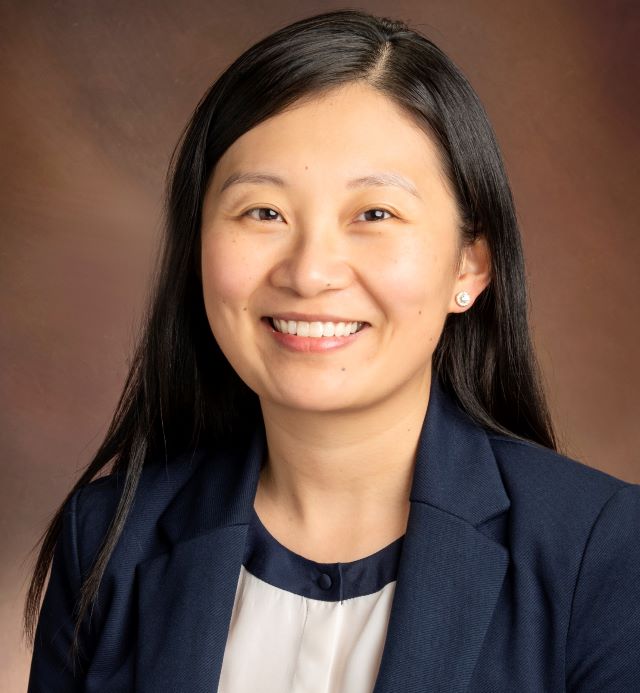
Joy Wan, M.D., M.S.C.E., an assistant professor of dermatology, is among 2023’s physician scientists receiving a Doris Duke Foundation grant for clinical research. This year, through fellowships and multi-year grants, the Doris Duke Foundation has awarded 21 scientists with a combined $7.92 million that will provide mentored research funding and time protection to early-career physician scientists to advance clinically significant research. Wan received a $450,000 grant.
-
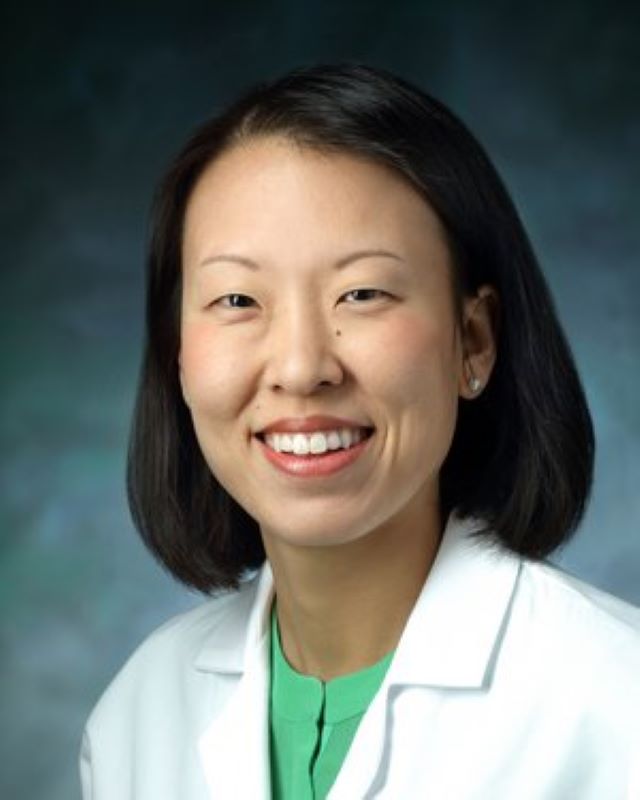
Youngjee Choi, M.D., an assistant professor of medicine in the departments of Oncology and Medicine, Division of General Internal Medicine, was inducted into the 2023 class of the Miller Coulson Academy of Clinical Excellence at the annual Excellence in Patient Care Symposium on Oct. 16, 2023. Choi and the other inductees shared inspirational stories about clinical excellence and how it is at the core of the Johns Hopkins mission.
-
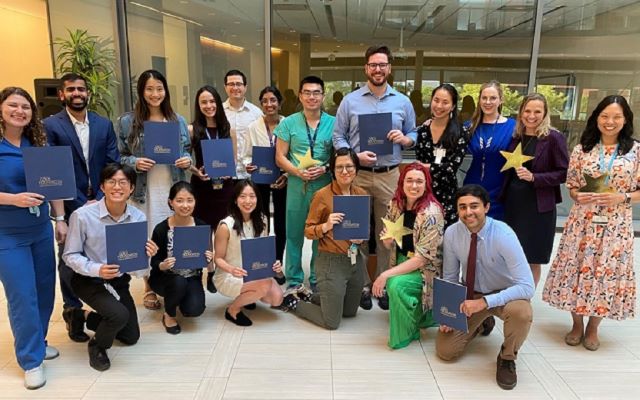
In August 2023, 19 senior medical students were inducted into the Johns Hopkins University School of Medicine Gold Humanism Honor Society (GHHS), in recognition of their humanistic care. The Johns Hopkins GHHS chapter provides a formal way to celebrate and reward humanism in medicine. The society was founded by the Arnold P. Gold Foundation, which defines humanism as “compassionate, collaborative, and scientifically excellent care.” The inductees are Christina Ambrosino, Mitchell Bryski, Ren DeBrosse, Haleigh Ferro, Gabriela Gomez, Razeen Karim, Carolina Lopez-Silva, Divya Manoharan, Xian Mao , Sumil Nair, Michelle Odonkor, Jason Ong, Miguel Ramirez Sanchez, Clarissa Ren, Emily Sun, Erin Wang, Carly Weber-Levine, Grant Wen and Cindy Yang.
-
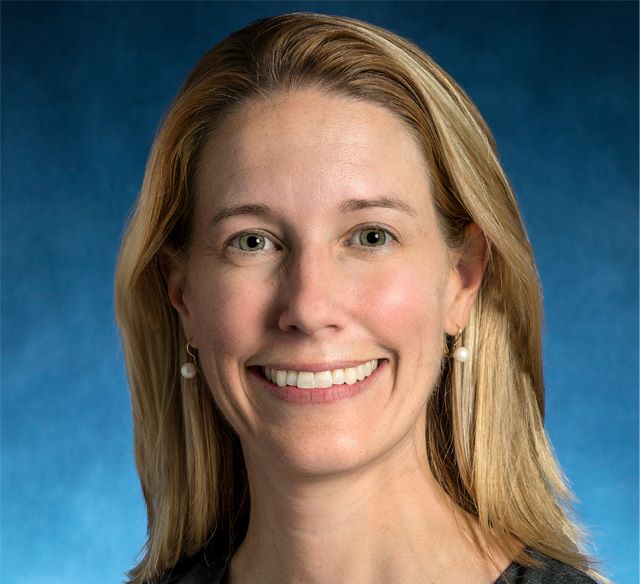
Johns Hopkins Children’s Center pediatric oncologists Challice Bonifant, M.D., Ph.D., who is also an assistant professor of oncology, and Eric Raabe, M.D., Ph.D., who is also an associate professor of oncology, were recently awarded grants from the St. Baldrick’s Foundation, an organization that supports research to find cures and improve treatments for childhood cancers. Bonifant was awarded a $115,000 scholar grant, which will be used for her ongoing research related to determining whether engineered T-cells can provide better outcomes for young patients with cancer. Raabe was awarded a $100,000 research grant to find better, less toxic therapies to treat atypical teratoid/rhabdoid tumors, rare and fast-growing cancerous tumors of the brain and spinal cord. Raabe’s studies are providing the pre-clinical information necessary to support the launch of an international clinical trial for pediatric patients with this deadly brain tumor.
-
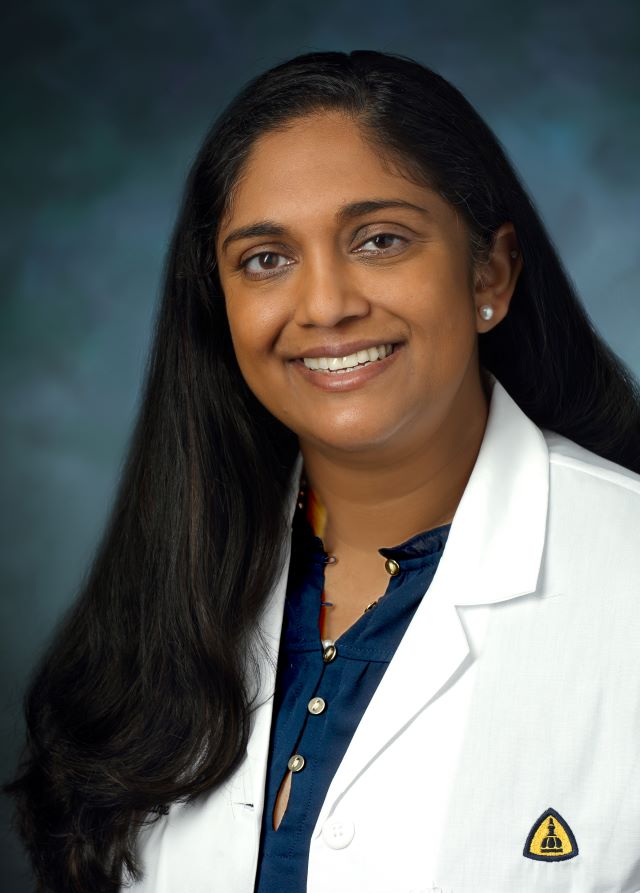
Lolita Nidadavolu, M.D, Ph.D., assistant professor of medicine specializing in geriatrics and gerontology, was awarded a Spring 2023 Clinician Scientist Award from Johns Hopkins University School of Medicine for her project titled “Microglial Responses to Cell-free DNA in Alzheimer’s Disease.” This competitive award provides School of Medicine junior faculty physicians in clinical departments up to $80,000 salary support for two years to promote research career development. Mentors for Nidadavolu’s award include Esther Oh, M.D., Ph.D., and Peter Abadir, M.D.
-
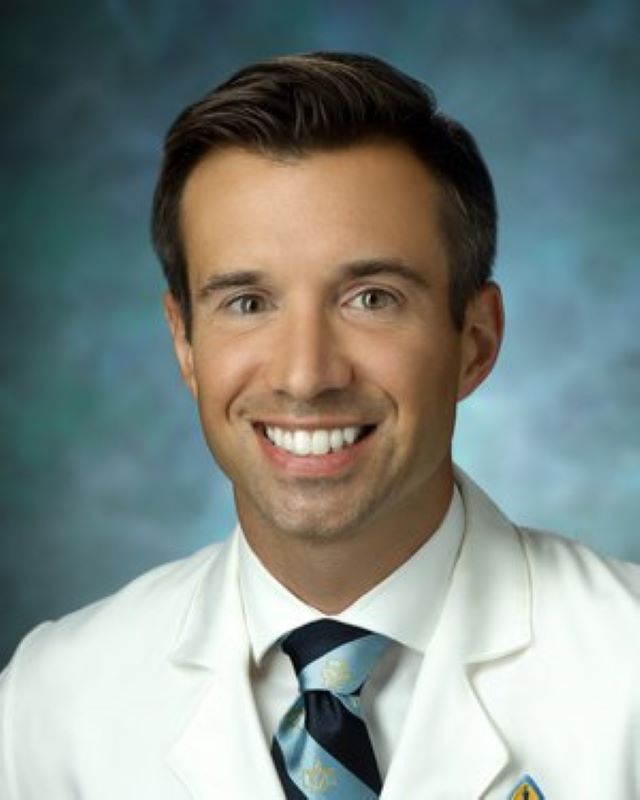
Nicholas Rowan, M.D., an associate professor of otolaryngology–head and neck surgery and of neurosurgery, and associate director of the Hereditary Hemorrhagic Telangiectasia Center, has been awarded the Johns Hopkins University Center for AIDS Research Developmental Core Young Scholar Award. A sinus and skull base surgeon, Rowan is involved in clinical and outcomes research. His key areas of interest include the sense of smell and quality of life outcomes for patients who have sinus or skull base surgery, with a focus on how to improve patient outcomes and health span. During the past several years, Rowan has helped define some of the unique associations of olfaction with unhealthy aging and the novel associations among the sense of smell, frailty and life span in older adults. His award-winning proposal, titled "Olfactory Dysfunction and Its Association with Cognitive Dysfunction and Physical Frailty in Aging People with HIV," aims to look at the sense of smell in a longitudinal cohort of people from Baltimore who are aging and who are HIV positive or HIV negative.
-
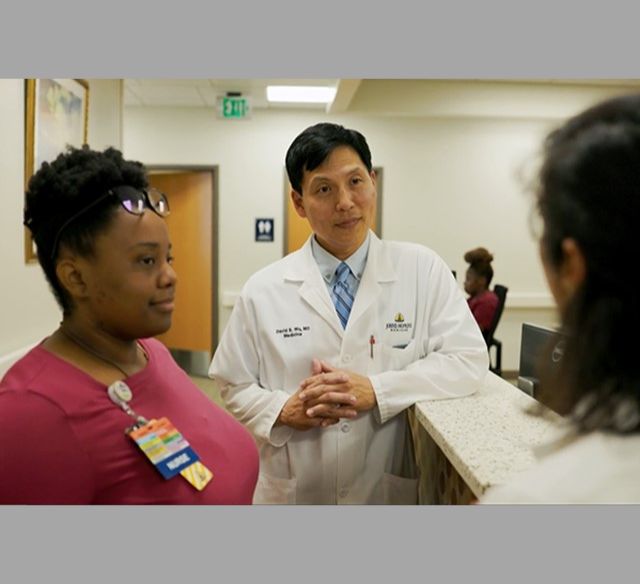
The Palliative Care Program at Johns Hopkins Bayview Medical Center, led by David Wu, M.D., has been honored with a 2023 Circle of Life Award for its efforts in palliative and end-of-life care. The award, given by the American Hospital Association (AHA), "honors hospital and palliative care programs that are ensuring equitable access to care, implementing nontraditional models of care delivery and payment, fully integrating palliative care into a system of care or a community" and more.... "The Palliative Care Program at Bayview provides clinical care for adult patients across inpatient, acute rehabilitation and ambulatory settings. The program has made significant advances to become a creative, substantive program that is deeply engaged in its community while pursuing excellence on several fronts," the AHA said in a news release.
-
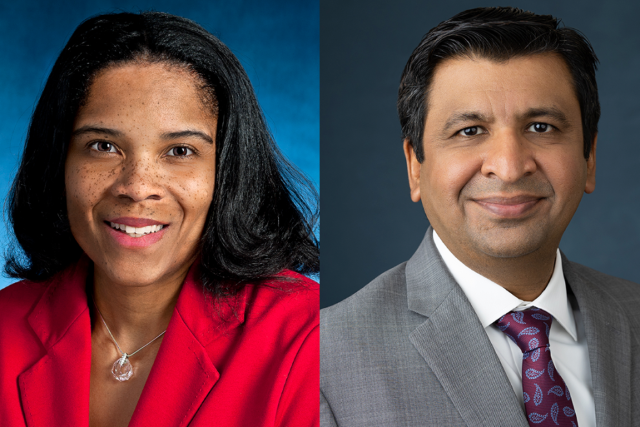
Deidra Crews, M.D., professor of medicine in the Division of Nephrology, and Chirag Parikh, M.B.B.S., Ph.D., professor of medicine and director in the Division of Nephrology, have received funding from the National Institute of Diabetes and Digestive and Kidney Diseases to create the Johns Hopkins O’Brien Center to Advance Kidney Health Equity. The overarching goal of the center is to serve as a national resource for investigators conducting pre-clinical (basic), clinical or population health research addressing kidney health disparities, and make recommendations to inform strategies, interventions and approaches aimed at achieving kidney health equity. With this five-year, $4.3 million grant, they will leverage the strengths and existing infrastructure of the Division of Nephrology, the Welch Center for Prevention, Epidemiology and Clinical Research and the Johns Hopkins Center for Health Equity to create three integrated cores (Administrative, Biomedical Resource and Resource Development), an executive committee, an internal advisory committee and a community advisory board.
-
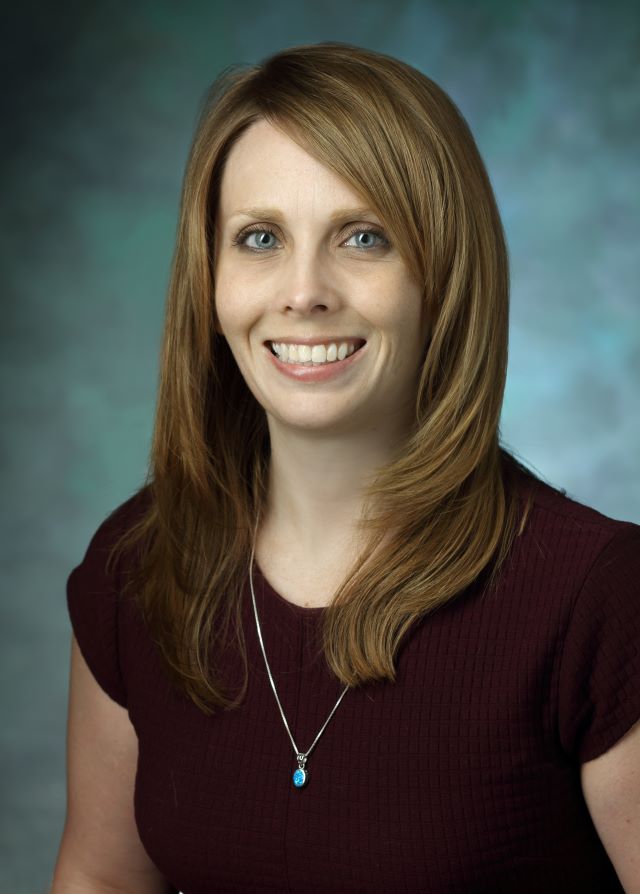
Kelly Dunn, Ph.D. M.B.A., professor of psychiatry and behavioral sciences, has been featured in the APA journal (talics) Experimental and Clinical Psychopharmacology (ECP) spotlight. She is also an incoming editor for the journal. As editor, she seeks to facilitate submissions of qualitative studies on drug effects, studies that will provide an important perspective for learning how drugs are being experienced by individuals. Read the full spotlight here.
-
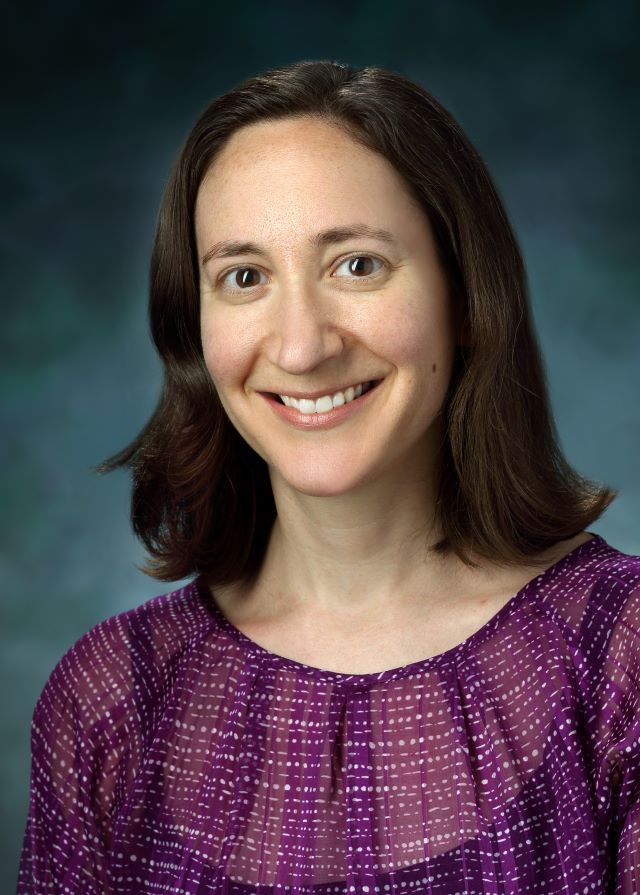
Ariel Green, M.D., Ph.D., M.P.H., associate professor of medicine specializing in geriatrics and gerontology has been recognized by the NIA IMPACT Collaboratory for her work on ALIGN: Aligning Medications with What Matters Most to serve people living with dementia. The mission of the National Institute on Aging (NIA) IMbedded Pragmatic Alzheimer's disease (AD) and AD-Related Dementias (AD/ADRD) Clinical Trials (IMPACT) Collaboratory is to build the nation’s capacity to conduct pragmatic clinical trials of interventions embedded within health care systems for people living with dementia and their care partners.
-
Jessica Engle, D.O., assistant professor of physical medicine and rehabilitation and oncology, has been awarded one of the 2023 Dr. Stephen Turner Residency and Faculty Scholarships from the American College of Lifestyle Medicine. The scholarship recipients will become certified in lifestyle medicine, a practice that involves implementing behavioral changes to prevent and treat chronic diseases. Through this certification, Engle will gain the necessary skills to train Hopkins residents in the lifestyle medicine approach.
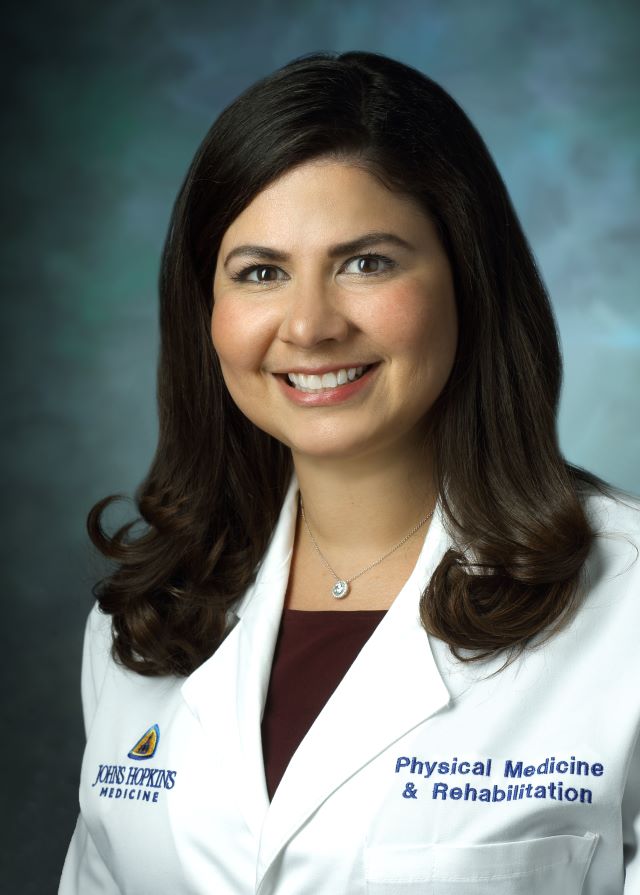
-
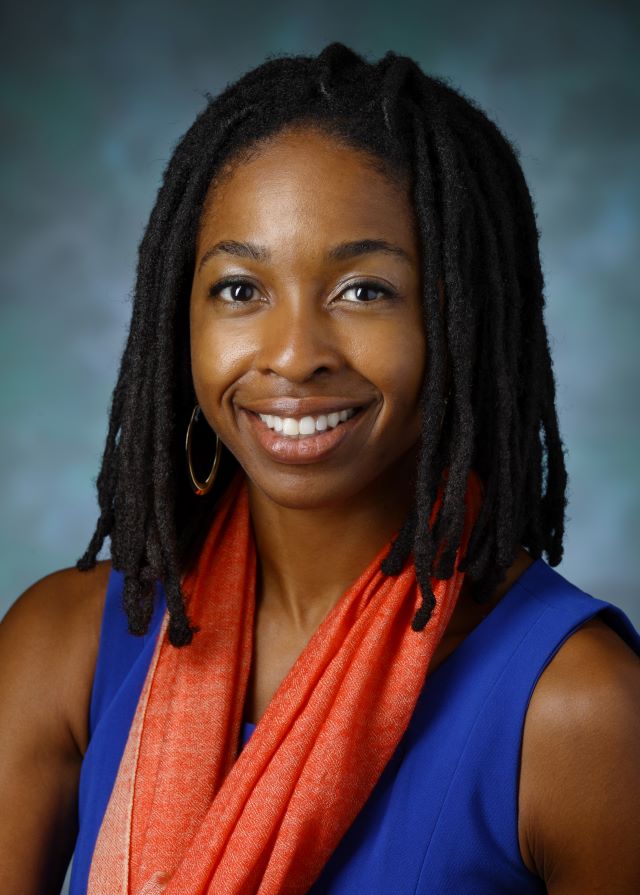
Allison Agwu, M.D., Sc.M., pediatric and adult infectious disease specialist, has been named the chair of the HIV Medicine Association (HIVMA). In this role, Agwu, who is also a professor of pediatrics and medicine, will oversee efforts, along with other HIVMA leaders, regarding health disparities and inequities in the organization's mission to end the HIV epidemic. Agwu’s clinical care and research focus on addressing health disparities and on improving care, treatment strategies and health outcomes for children, adolescents and young adults at risk for or living with HIV. She is the founder and medical director of the Accessing Care Early Clinic and the program director of the multidisciplinary pediatric/adolescent HIV/AIDS program at Johns Hopkins. Agwu, who has been on the HIVMA board since 2018, will serve as chair for one year.
-
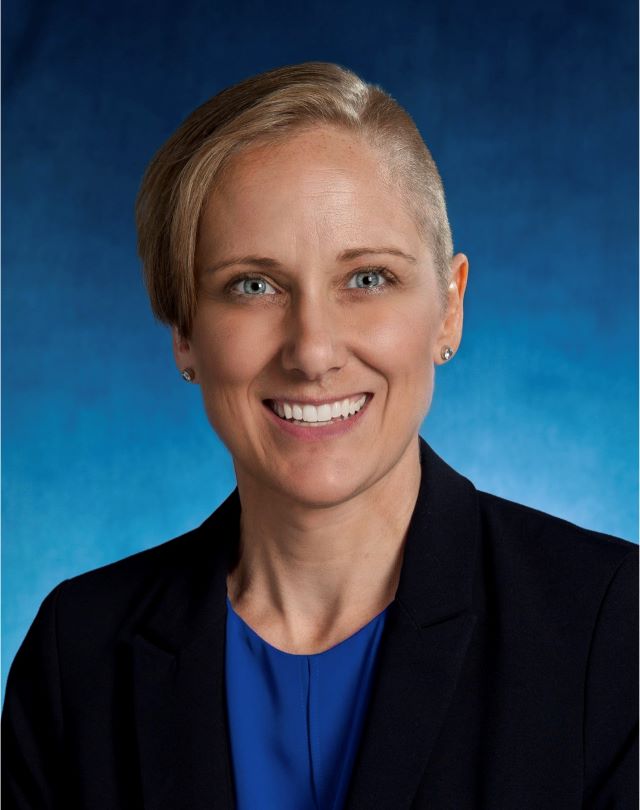
Jennifer Anders, M.D., assistant professor of pediatrics, has received the Pediatric EMS Award from the National Association of Emergency Medical Technicians (NAEMT) and the American Academy of Pediatrics (AAP). The award is given annually to recognize an individual who has demonstrated excellence in providing pediatric EMS (Emergency Medical Services) care and/or education. Anders, who joined the faculty at Johns Hopkins Children’s Center in 2005, is the medical director of the Pediatric Base Station at the Children’s Center. She is also chair of the AAP’s Pediatric Education for Prehospital Professionals Steering Committee. The award was presented during the NAEMT's annual meeting in New Orleans in September 2023.
-
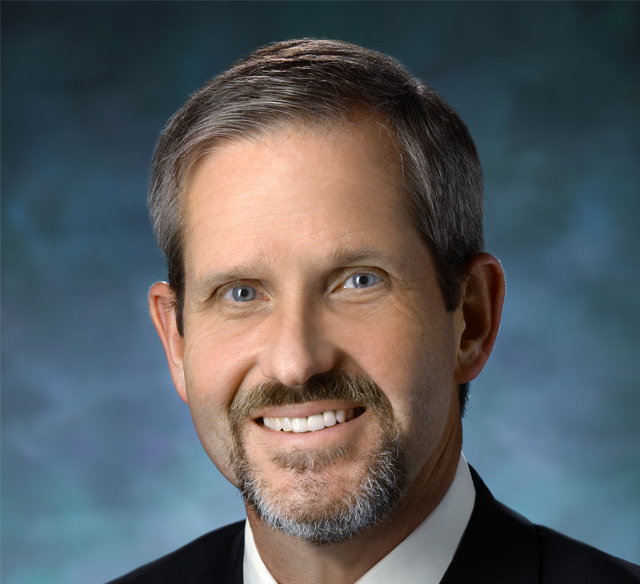
Jim Ficke, M.D., chair of the Department of Orthopaedic Surgery at The Johns Hopkins Hospital and the Robert A. Robinson Professor of Orthopaedic Surgery at the Johns Hopkins University School of Medicine, has been elected to the position of director-elect of the American Board of Orthopaedic Surgery (ABOS). He will work alongside 20 other members of the ABOS board of directors to establish standards for the education of orthopedic surgeons.
-
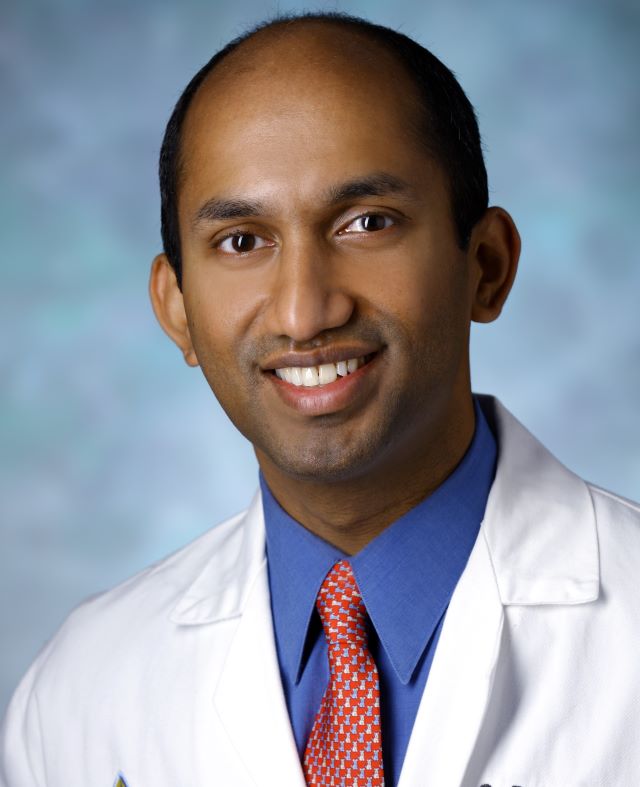
Chetan Bettegowda, the Jennison and Novak Families Professor of Neurosurgery, has been honored with the Paragon Award for Research Excellence by the Doris Duke Foundation, an organization that supports leading clinician scientists. The award honors physician scientists who have significantly advanced the knowledge of prevention, diagnosis and treatment of disease or who have improved health outcomes for patients. It is a onetime recognition created to celebrate the foundation’s 25th anniversary, and it was presented to Bettegowda on Oct. 26, 2023, in New York City. Bettegowda previously received a Clinical Scientist Development Award from the foundation.
-
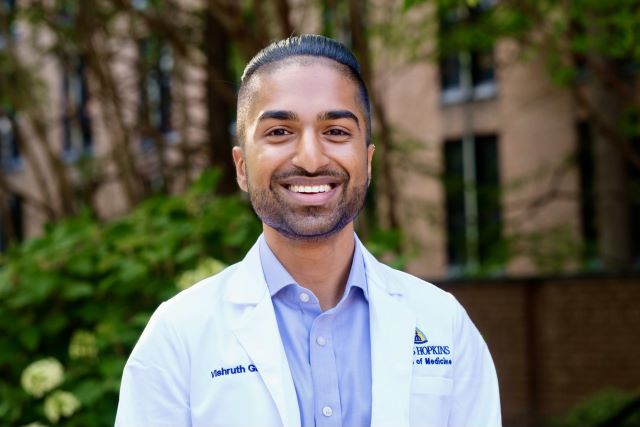
Second-year M.D.-Ph.D. student Vishruth Girish, not only was lead author of a publication in the August 2023 issue of Science, but his research was also featured on the cover. See “Oncogene-like Addiction to Aeuploidy in Human Cancers.” Girish started this work at Cold Spring Harbor Laboratory in 2018, continued it at Yale University and wrote the paper during his first year at Johns Hopkins. In brief, Girish's work discovered that why cancer cells need extra chromosomes to grow. The work raises the possibility of a new approach to treating cancer. Girish is in the medical scientist training program, and he intends to continue working in the field of cancer biology, with a focus on early cancer detection.
-
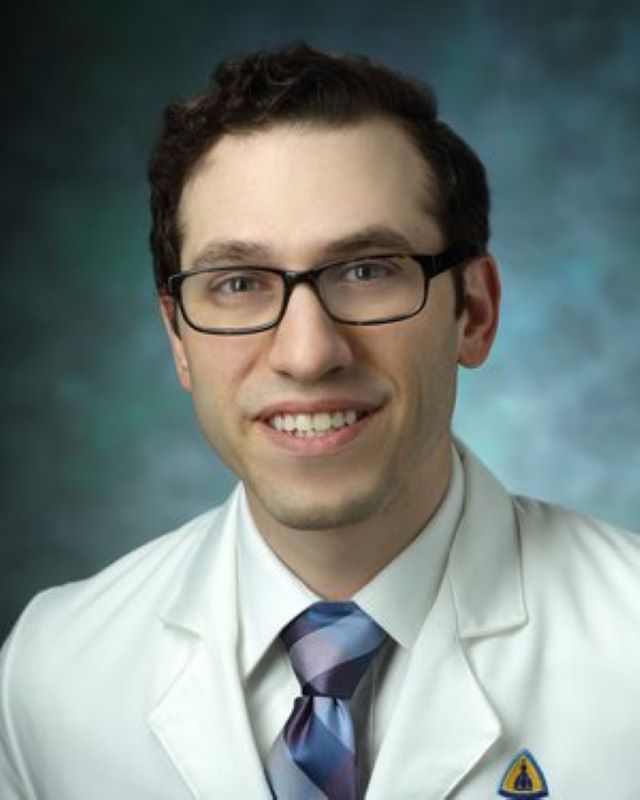
Nicholas Salvatore Reed, Au.D., Ph.D., has been awarded the Johns Hopkins University Center for AIDS Research Faculty Development Award. Reed is an assistant professor in the Department of Epidemiology at the Johns Hopkins Bloomberg School of Public Health, with a joint appointment in the Department of Otolaryngology–Head and Neck Surgery at the Johns Hopkins University School of Medicine. He is also a core faculty member at the Cochlear Center for Hearing and Public Health, where he is the director of the audiology core. In this role, he oversees the integration of hearing measures and hearing care into cohort studies and clinical trials. His award-winning proposal, titled "Pilot of Hearing Loss and Aging Among Adults with HIV," aims to characterize hearing loss and frailty in a longitudinal cohort study of people from Baltimore who are aging and who are HIV positive or HIV negative.
-

The Palliative Care Program at Johns Hopkins Bayview Medical Center, led by David Wu, M.D., has been honored with a 2023 Circle of Life Award for its efforts in palliative and end-of-life care. The award, given by the American Hospital Association (AHA), "honors hospital and palliative care programs that are ensuring equitable access to care, implementing nontraditional models of care delivery and payment, fully integrating palliative care into a system of care or a community" and more.... "The Palliative Care Program at Bayview provides clinical care for adult patients across inpatient, acute rehabilitation and ambulatory settings. The program has made significant advances to become a creative, substantive program that is deeply engaged in its community while pursuing excellence on several fronts," the AHA said in a news release.
-
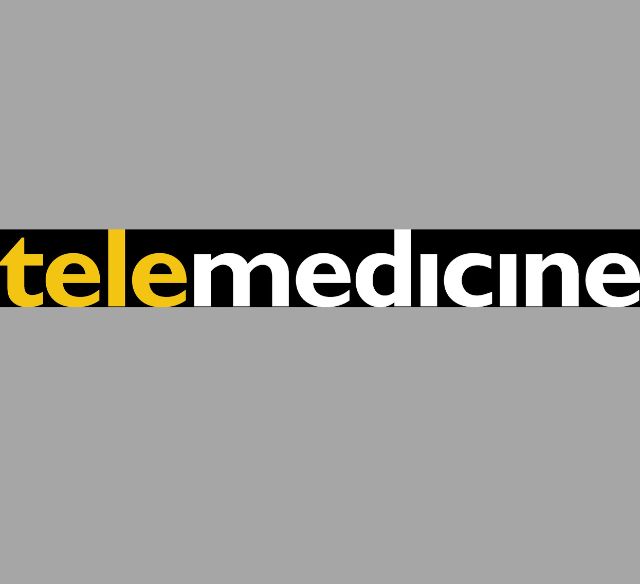
The Johns Hopkins Office of Telemedicine’s medical director, Helen Hughes, M.D., in collaboration with the Johns Hopkins Telemedicine Equity Working Group, has received the 2023 Telehealth Equity Catalyst (TEC) Award from the Association of American Medical Colleges (AAMC). Awardees demonstrate a positive impact on barriers associated with telehealth and health technology, and show telehealth’s potential impact on health and health care equity. The winning program was titled “Capitalizing on Momentum to Improve Telehealth Access Equity in Baltimore City.” The winners were awarded $15,000 to fund and expand the existing program through the Telemedicine Equity Working Group. The aims of the program are continued coordination with local stakeholders to refine and iterate a digital equity training program in East Baltimore and facilitate further convening of groups in collaboration with Baltimore City. -
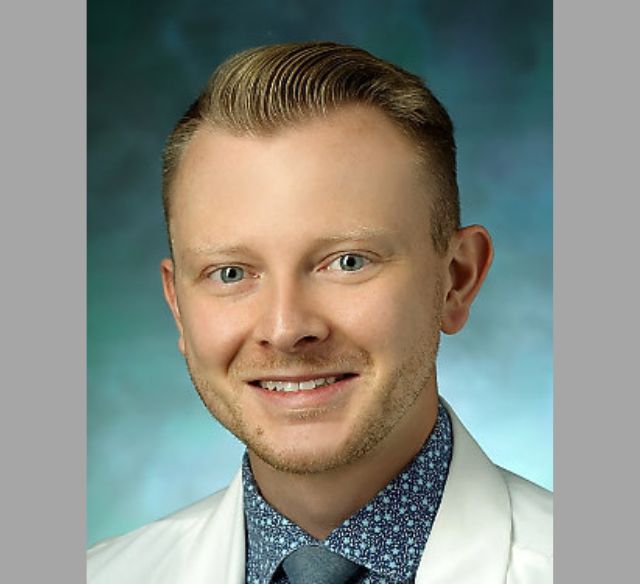 Corey Tapper, M.D., has been selected to serve on the Hospice and Palliative Medicine Item-Writing Task Force for the American Board of Internal Medicine. His term runs from July 1, 2023 to June 30, 2025, and he may opt for begin another term after that. He will be working on board question development and improvement for the initial certification, re-certification and longitudinal knowledge assessment (LKA) exams. "This has been a goal of mine over the last few years, so I look forward to the opportunity," Tapper said.
Corey Tapper, M.D., has been selected to serve on the Hospice and Palliative Medicine Item-Writing Task Force for the American Board of Internal Medicine. His term runs from July 1, 2023 to June 30, 2025, and he may opt for begin another term after that. He will be working on board question development and improvement for the initial certification, re-certification and longitudinal knowledge assessment (LKA) exams. "This has been a goal of mine over the last few years, so I look forward to the opportunity," Tapper said. -
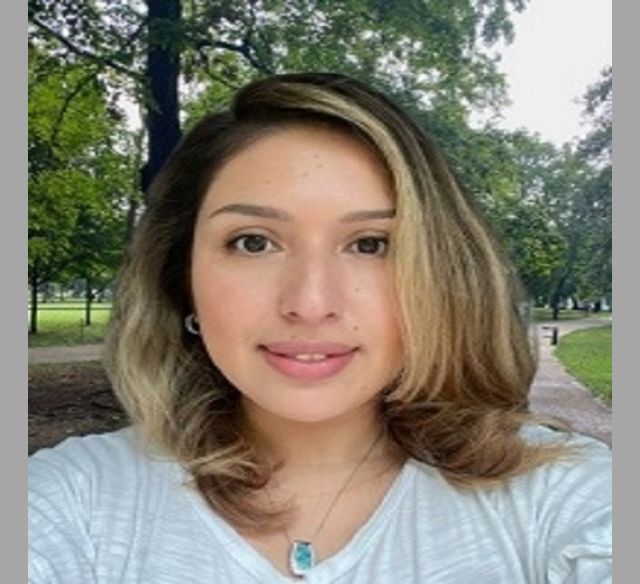 Susan Mirabal, M.D., a General Internal Medicine fellow, has been honored with the Fatemeh Vahabzadeh Award for Cross-Collaborative Research. The award, which was presented by the GIM Fellowship, recognized Mirabal for her stakeholder-engaged work across multiple medical education projects. It was created by a GIM Fellowship alum, Reza Alavi, M.D., M.H.S., in honor of his grandmother, Fatemeh Vahabzadeh.
Susan Mirabal, M.D., a General Internal Medicine fellow, has been honored with the Fatemeh Vahabzadeh Award for Cross-Collaborative Research. The award, which was presented by the GIM Fellowship, recognized Mirabal for her stakeholder-engaged work across multiple medical education projects. It was created by a GIM Fellowship alum, Reza Alavi, M.D., M.H.S., in honor of his grandmother, Fatemeh Vahabzadeh. -
-
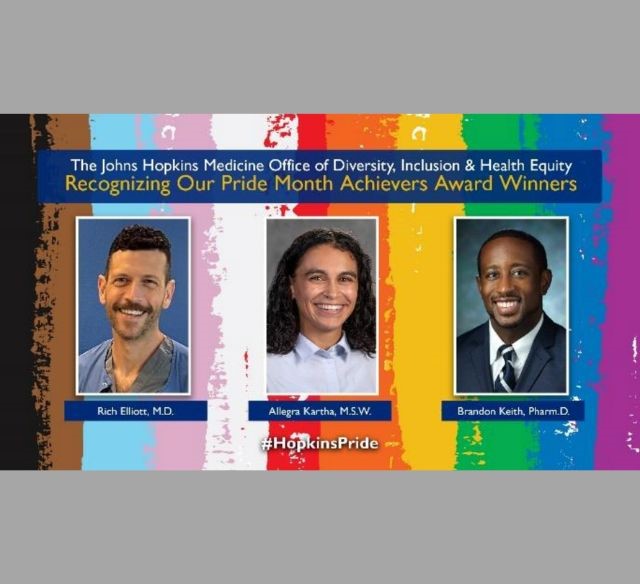 The winners of 2023's Pride Month Achiever Awards from Johns Hopkins Medicine’s Office of Diversity, Inclusion and Health Equity are Allegra Kartha, neuro-oncology social worker at Johns Hopkins All Children’s Hospital; Brandon Keith, clinical coordinator at Johns Hopkins Care at Home, and Richard “Rich” Elliot, pediatric anesthesiologist at Johns Hopkins All Children’s Hospital. The Achievers Award program recognizes and highlights people from underrepresented groups who exemplify excellence and exhibit core values of Johns Hopkins Medicine. Each award winner was nominated by colleagues for their outstanding contributions to the field of health care and the LGBTQ+ community.
The winners of 2023's Pride Month Achiever Awards from Johns Hopkins Medicine’s Office of Diversity, Inclusion and Health Equity are Allegra Kartha, neuro-oncology social worker at Johns Hopkins All Children’s Hospital; Brandon Keith, clinical coordinator at Johns Hopkins Care at Home, and Richard “Rich” Elliot, pediatric anesthesiologist at Johns Hopkins All Children’s Hospital. The Achievers Award program recognizes and highlights people from underrepresented groups who exemplify excellence and exhibit core values of Johns Hopkins Medicine. Each award winner was nominated by colleagues for their outstanding contributions to the field of health care and the LGBTQ+ community. -
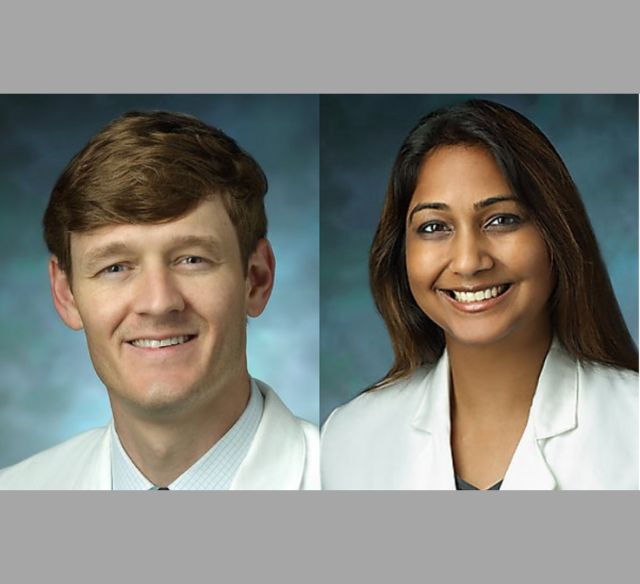 Francis Creighton Jr., M.D., assistant professor of otolaryngology, and Deepa Galaiya, M.D., associate residency program co-director and assistant professor of otolaryngology, have received a Johns Hopkins Discovery Award as members of an interdisciplinary faculty team. The Discovery Awards recognize work that addresses complex problems and expands the horizons of knowledge in medicine. Creighton and Galaiya are one of 35 award-winning project teams. Their project, selected from 191 proposals, is titled Simulated Assisted Navigation for Skull Base Surgery. “This year’s Discovery Award honorees exhibit exceptional creativity and innovation in their pursuit of cross-disciplinary solutions to a multitude
Francis Creighton Jr., M.D., assistant professor of otolaryngology, and Deepa Galaiya, M.D., associate residency program co-director and assistant professor of otolaryngology, have received a Johns Hopkins Discovery Award as members of an interdisciplinary faculty team. The Discovery Awards recognize work that addresses complex problems and expands the horizons of knowledge in medicine. Creighton and Galaiya are one of 35 award-winning project teams. Their project, selected from 191 proposals, is titled Simulated Assisted Navigation for Skull Base Surgery. “This year’s Discovery Award honorees exhibit exceptional creativity and innovation in their pursuit of cross-disciplinary solutions to a multitude
-
 John Carey, M.D., professor and chief of the Division of Otology, Neurotology and Skull Base Surgery in the Department of Otolaryngology-Head and Neck Surgery, was inducted into the Distinguished Teaching Society (DTS) at Johns Hopkins on May 15. Carey is also director of the Lloyd B. Minor Center for Vestibular and Skull Base Sciences as well as program director of the Department of Otolaryngology’s Neurotology Fellowship Program. DTS is a student-organized honor society for outstanding clinical educators. The consideration process requires students to submit nominations for induction into the society. DTS uses a literature-based, student-created rubric and a rigorous review process. Carey was selected for meeting the highest standard in clinical teaching excellence.
John Carey, M.D., professor and chief of the Division of Otology, Neurotology and Skull Base Surgery in the Department of Otolaryngology-Head and Neck Surgery, was inducted into the Distinguished Teaching Society (DTS) at Johns Hopkins on May 15. Carey is also director of the Lloyd B. Minor Center for Vestibular and Skull Base Sciences as well as program director of the Department of Otolaryngology’s Neurotology Fellowship Program. DTS is a student-organized honor society for outstanding clinical educators. The consideration process requires students to submit nominations for induction into the society. DTS uses a literature-based, student-created rubric and a rigorous review process. Carey was selected for meeting the highest standard in clinical teaching excellence. -
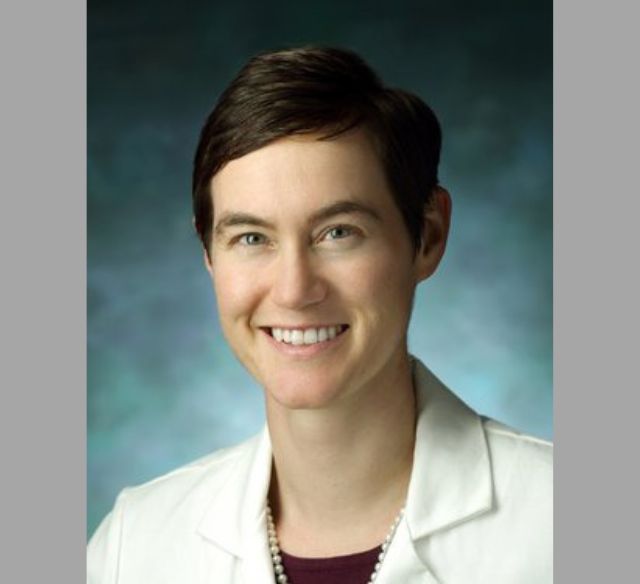 Carrie Nieman, M.D., M.P.H., associate professor of otolaryngology, was named a Johns Hopkins Catalyst Award recipient in May. The 37 early-career faculty members receiving the award were selected based on their accomplishments, creativity and originality, and on academic impact. The honor is accompanied by a $75,000 grant with the goal of launching the recipient on a path to a sustainable and rewarding academic career. Nieman’s research focuses on hearing health disparities among older adults and innovative, community-delivered approaches to affordable, accessible hearing care.
Carrie Nieman, M.D., M.P.H., associate professor of otolaryngology, was named a Johns Hopkins Catalyst Award recipient in May. The 37 early-career faculty members receiving the award were selected based on their accomplishments, creativity and originality, and on academic impact. The honor is accompanied by a $75,000 grant with the goal of launching the recipient on a path to a sustainable and rewarding academic career. Nieman’s research focuses on hearing health disparities among older adults and innovative, community-delivered approaches to affordable, accessible hearing care.
-
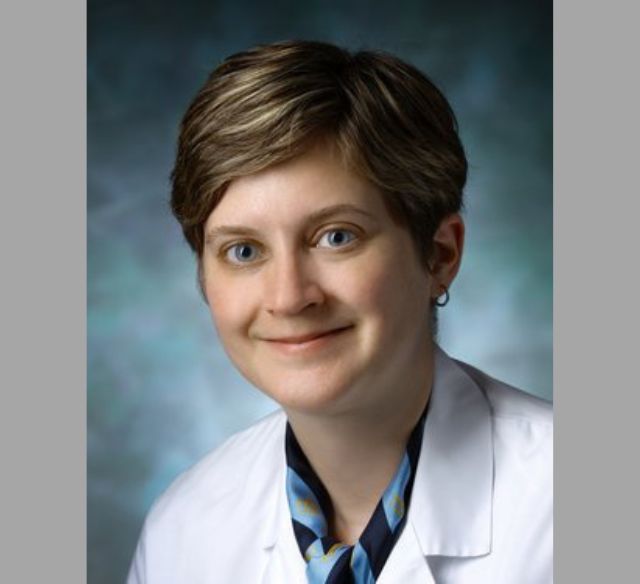 Amanda Lauer, Ph.D., M.S., associate professor of otolaryngology and neuroscience, has been elected as a fellow of the Acoustical Society of America. The society’s mission is to generate, disseminate and promote the knowledge and practical applications of acoustics. This honor is bestowed on nominated members who have provided outstanding service or made other notable contributions to the advancement or diffusion of the knowledge of acoustics. The overall goals of Lauer’s research are to understand the link between perceptual deficits associated with hearing loss and auditory brainstem changes, how the brain contributes to auditory dysfunction and plasticity via olivocochlear efferent feedback loops, and the comparative pathobiology of the auditory system.
Amanda Lauer, Ph.D., M.S., associate professor of otolaryngology and neuroscience, has been elected as a fellow of the Acoustical Society of America. The society’s mission is to generate, disseminate and promote the knowledge and practical applications of acoustics. This honor is bestowed on nominated members who have provided outstanding service or made other notable contributions to the advancement or diffusion of the knowledge of acoustics. The overall goals of Lauer’s research are to understand the link between perceptual deficits associated with hearing loss and auditory brainstem changes, how the brain contributes to auditory dysfunction and plasticity via olivocochlear efferent feedback loops, and the comparative pathobiology of the auditory system.
-
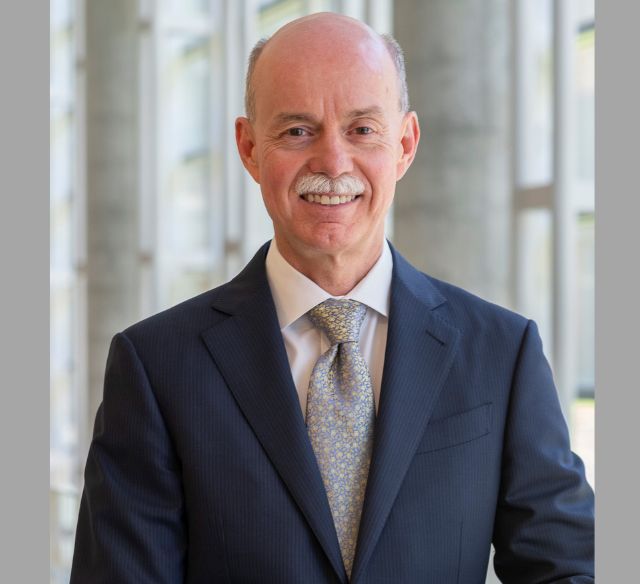 Theodore DeWeese, M.D., interim dean of the School of Medicine and CEO of Johns Hopkins Medicine, was congratulated in early May by Maryland Comptroller Brooke E. Lierman for being named to The Daily Record's 2023 Health Care Power List of the region's healthcare leaders. The comptroller said in a letter, "You are among the ranks of other exceptional people who have displayed unique leadership qualities in their chosen profession to advance our communities. Johns Hopkins has had a significant impact on Maryland by providing superior medical care to patients and researching illnesses and conditions that lead to scientific breakthroughs. Maryland has been enriched by your talents and skills in many ways. I truly appreciate all you do to help communities around the state reach their full potential."
Theodore DeWeese, M.D., interim dean of the School of Medicine and CEO of Johns Hopkins Medicine, was congratulated in early May by Maryland Comptroller Brooke E. Lierman for being named to The Daily Record's 2023 Health Care Power List of the region's healthcare leaders. The comptroller said in a letter, "You are among the ranks of other exceptional people who have displayed unique leadership qualities in their chosen profession to advance our communities. Johns Hopkins has had a significant impact on Maryland by providing superior medical care to patients and researching illnesses and conditions that lead to scientific breakthroughs. Maryland has been enriched by your talents and skills in many ways. I truly appreciate all you do to help communities around the state reach their full potential." -
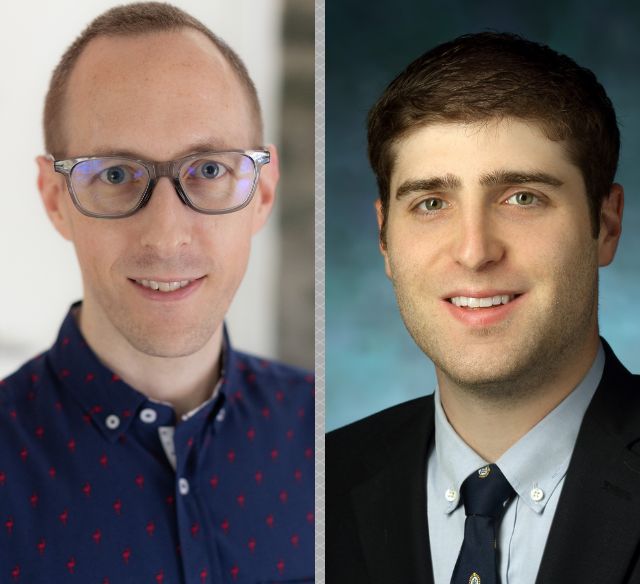 Johns Hopkins Children’s Center pediatric emergency medicine physicians Justin Jeffers, M.D., M.Ed. (left), and Keith Kleinman, M.D., M.A., both assistant professors of pediatrics, have been awarded a five-year, $1.1 million grant from the Agency for Healthcare Research and Quality to further develop technology for an augmented reality (AR) device designed to improve performance while doing CPR and to lay the groundwork to conduct an international multicenter study for more testing. The AR device can provide real-time feedback while it is used by emergency responders, allowing them to make adjustments to improve results.
Johns Hopkins Children’s Center pediatric emergency medicine physicians Justin Jeffers, M.D., M.Ed. (left), and Keith Kleinman, M.D., M.A., both assistant professors of pediatrics, have been awarded a five-year, $1.1 million grant from the Agency for Healthcare Research and Quality to further develop technology for an augmented reality (AR) device designed to improve performance while doing CPR and to lay the groundwork to conduct an international multicenter study for more testing. The AR device can provide real-time feedback while it is used by emergency responders, allowing them to make adjustments to improve results. -
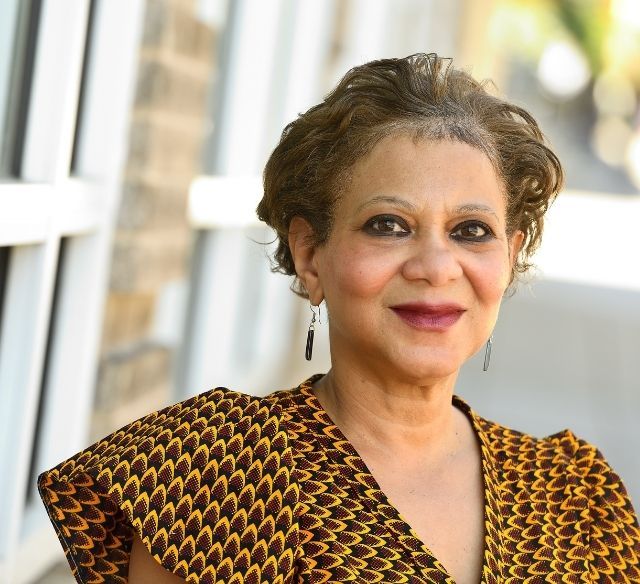 Lisa A. Cooper, M.D., M.P.H., the James F. Fries Professor of Medicine and a Bloomberg Distinguished Professor with primary appointments in Johns Hopkins University School of Medicine, School of Nursing and Bloomberg School of Public Health, has been awarded the 2023 John M. Eisenberg National Award for Career Achievement in Research by the Society of General Internal Medicine (SGIM). The award. one of SGIM’s highest honors, was named in memory of the late John M. Eisenberg, M.D., M.B.A., an influential leader, investigator and advocate for research in general medicine. It recognizes the career achievements of a senior SGIM member whose innovative research has changed the way general internal medicine physicians care for patients, conduct research, educate students and inform health policy.
Lisa A. Cooper, M.D., M.P.H., the James F. Fries Professor of Medicine and a Bloomberg Distinguished Professor with primary appointments in Johns Hopkins University School of Medicine, School of Nursing and Bloomberg School of Public Health, has been awarded the 2023 John M. Eisenberg National Award for Career Achievement in Research by the Society of General Internal Medicine (SGIM). The award. one of SGIM’s highest honors, was named in memory of the late John M. Eisenberg, M.D., M.B.A., an influential leader, investigator and advocate for research in general medicine. It recognizes the career achievements of a senior SGIM member whose innovative research has changed the way general internal medicine physicians care for patients, conduct research, educate students and inform health policy. -
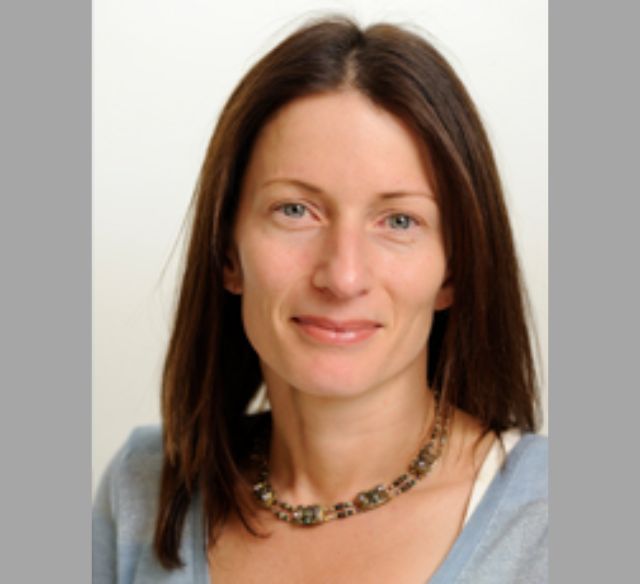 Mary Catherine Beach, M.D., M.P.H., a professor of medicine, has received an Excellence in Medical Ethics Award from the Society of General Internal Medicine. The award promotes and rewards outstanding contributions to the field of medical ethics, including not only traditional scholarship such as publication of research but also viewpoint articles, educational materials, popular writing, oral presentations, and efforts to influence health policy. The selection committee noted Beach's work on patient-physician communication, respect for patients, and it said that her patient-centered care in HIV, sickle cell disease and other conditions has been pioneering and fundamental. It also pointed out that as a mentor and educator, she has had an influence that is just as wide and deep a reach.
Mary Catherine Beach, M.D., M.P.H., a professor of medicine, has received an Excellence in Medical Ethics Award from the Society of General Internal Medicine. The award promotes and rewards outstanding contributions to the field of medical ethics, including not only traditional scholarship such as publication of research but also viewpoint articles, educational materials, popular writing, oral presentations, and efforts to influence health policy. The selection committee noted Beach's work on patient-physician communication, respect for patients, and it said that her patient-centered care in HIV, sickle cell disease and other conditions has been pioneering and fundamental. It also pointed out that as a mentor and educator, she has had an influence that is just as wide and deep a reach. -
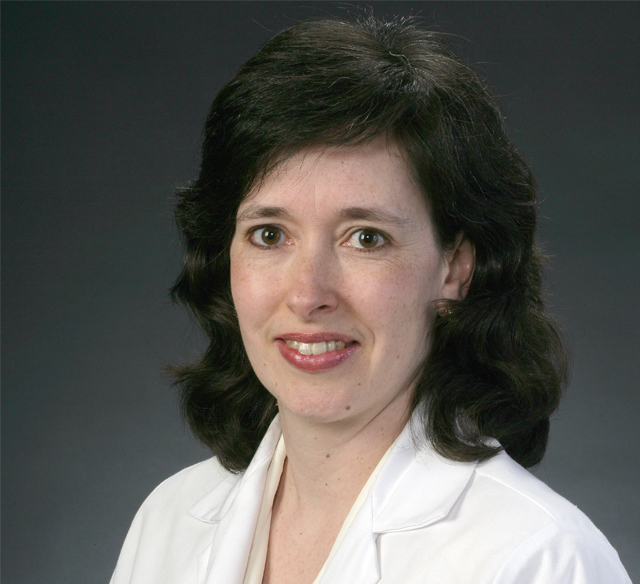 Jeanne M. Clark, M.D., M.P.H., a professor of medicine and director of the Division of General Internal Medicine, has received the 2023 Chief’s Recognition Award from the Association of Chiefs & Leaders of General Internal Medicine. This award is given annually to the GIM division chief who most represents excellence in division leadership. Clark was nominated for the award by many of her faculty members. The selection committee noted that Clark "stood out as a dedicated leader who has continued to develop a highly successful division with many impressive programs supporting both clinician educators and clinician investigators."
Jeanne M. Clark, M.D., M.P.H., a professor of medicine and director of the Division of General Internal Medicine, has received the 2023 Chief’s Recognition Award from the Association of Chiefs & Leaders of General Internal Medicine. This award is given annually to the GIM division chief who most represents excellence in division leadership. Clark was nominated for the award by many of her faculty members. The selection committee noted that Clark "stood out as a dedicated leader who has continued to develop a highly successful division with many impressive programs supporting both clinician educators and clinician investigators." -
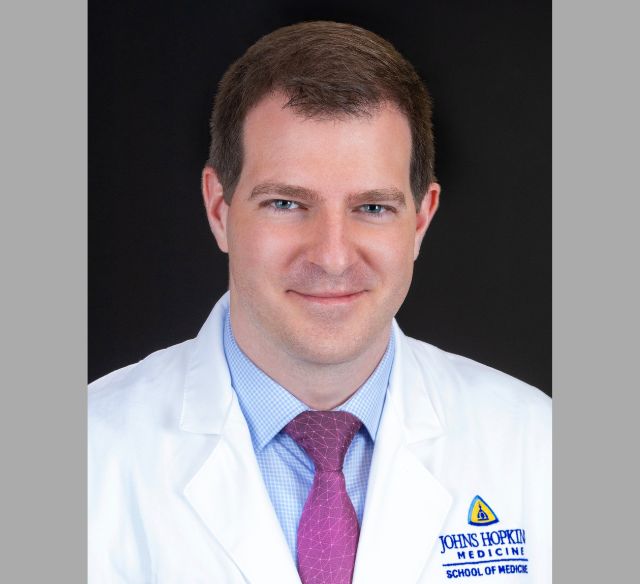 Maximilian F. Konig, M.D., an assistant professor of medicine in the Division of Rheumatology and physician-scientist in the Ludwig Center for Cancer Genetics and Therapeutics, has been awarded the Lupus Innovation Award from the Lupus Research Alliance. This award recognizes pioneering research to overcome major diagnostic and therapeutic challenges in lupus. Konig’s team focuses on the development and application of first-in-class precision immunotherapy approaches for antiphospholipid syndrome (APS), a major cause of thrombosis, pregnancy loss and death in patients with lupus. The research could lay the groundwork for highly optimized treatments for APS and other autoimmune diseases that would eliminate disease-causing B cells without harming normal B cells — a critical step in avoiding treatment-related complications such as infection.
Maximilian F. Konig, M.D., an assistant professor of medicine in the Division of Rheumatology and physician-scientist in the Ludwig Center for Cancer Genetics and Therapeutics, has been awarded the Lupus Innovation Award from the Lupus Research Alliance. This award recognizes pioneering research to overcome major diagnostic and therapeutic challenges in lupus. Konig’s team focuses on the development and application of first-in-class precision immunotherapy approaches for antiphospholipid syndrome (APS), a major cause of thrombosis, pregnancy loss and death in patients with lupus. The research could lay the groundwork for highly optimized treatments for APS and other autoimmune diseases that would eliminate disease-causing B cells without harming normal B cells — a critical step in avoiding treatment-related complications such as infection. -
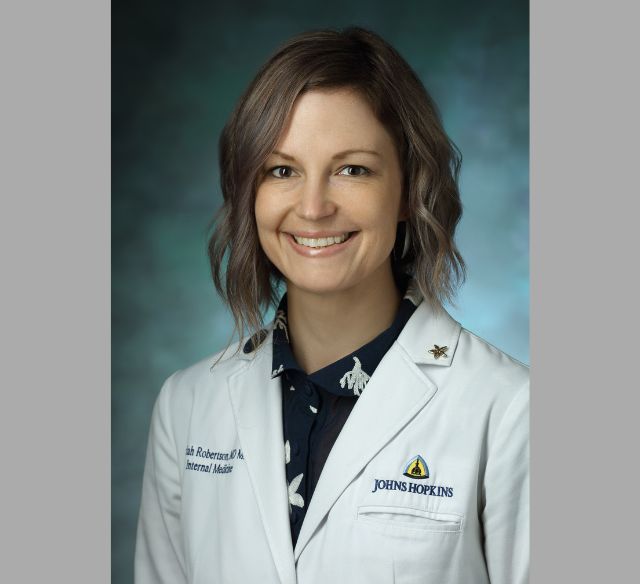 Mariah Robertson, M.D., M.P.H., assistant professor of medicine in the Division of Geriatric Medicine and Gerontology, has been awarded the Geriatric Academic Career Award through the Health Resources and Services Administration. This award offers $350,000 over four years to support Robertson's educational efforts in the Baltimore community. Her primary project will use arts-based teaching, specifically Visual Thinking Strategies, to help learners examine the biases and perspectives they bring to home and community environments. This work will align with the Age-Friendly Health System efforts already in place at Johns Hopkins Medicine and will help further the important educational work being done in the Division of Geriatric Medicine and Gerontology.
Mariah Robertson, M.D., M.P.H., assistant professor of medicine in the Division of Geriatric Medicine and Gerontology, has been awarded the Geriatric Academic Career Award through the Health Resources and Services Administration. This award offers $350,000 over four years to support Robertson's educational efforts in the Baltimore community. Her primary project will use arts-based teaching, specifically Visual Thinking Strategies, to help learners examine the biases and perspectives they bring to home and community environments. This work will align with the Age-Friendly Health System efforts already in place at Johns Hopkins Medicine and will help further the important educational work being done in the Division of Geriatric Medicine and Gerontology. -
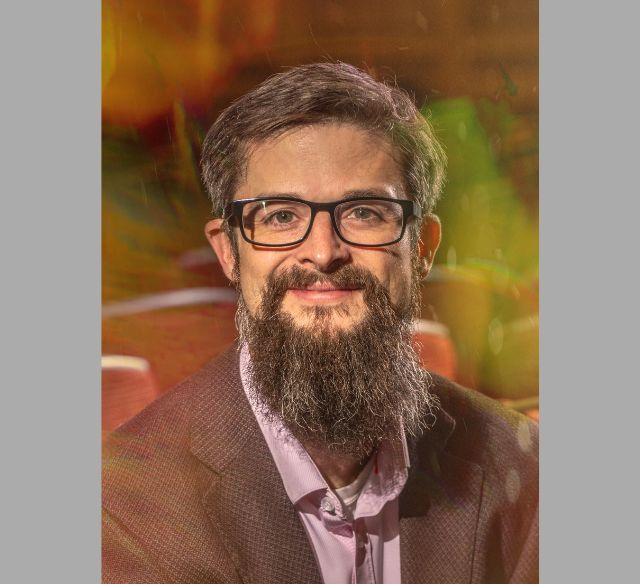 Matthew Johnson, Ph.D., professor of psychiatry and behavioral sciences, has been named a Verywell Mind 25 honoree. Verywell Mind is a website providing health and wellness information by health professionals with a particular focus on mental health. Johnson’s primary research since 2004 has been in psychedelics and other psychoactive drugs. He has published numerous papers, been interviewed by many prominent news outlets about psychedelics and other drugs, and been featured on podcasts promoting mental health and wellbeing. The Verywell Mind 25 celebrates the top thought leaders, experts and advocates making a positive impact on mental health today. Winners were analyzed for the quality and accuracy of their work and chosen by a panel of seven judges, comprised of Verywell Mind editors and a mental health experts.
Matthew Johnson, Ph.D., professor of psychiatry and behavioral sciences, has been named a Verywell Mind 25 honoree. Verywell Mind is a website providing health and wellness information by health professionals with a particular focus on mental health. Johnson’s primary research since 2004 has been in psychedelics and other psychoactive drugs. He has published numerous papers, been interviewed by many prominent news outlets about psychedelics and other drugs, and been featured on podcasts promoting mental health and wellbeing. The Verywell Mind 25 celebrates the top thought leaders, experts and advocates making a positive impact on mental health today. Winners were analyzed for the quality and accuracy of their work and chosen by a panel of seven judges, comprised of Verywell Mind editors and a mental health experts.
-
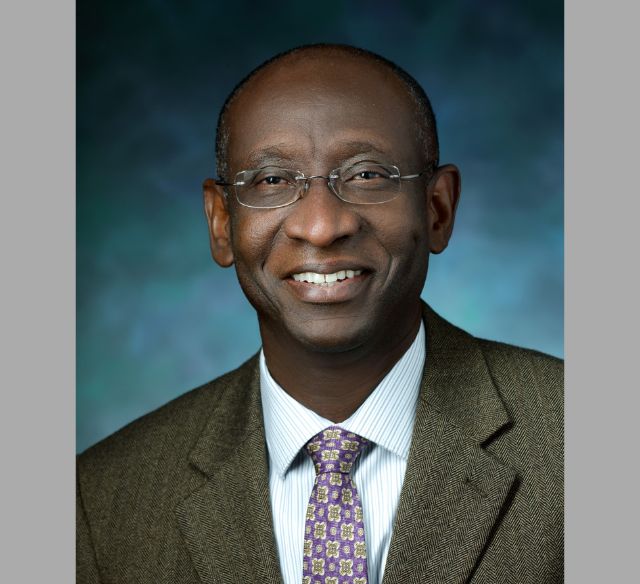 Rexford Ahima, M.D., Ph.D., a professor of medicine; director, Division of Endocrinology, Diabetes & Metabolism; and Bloomberg Distinguished Professor of Diabetes at Johns Hopkins University Schools of Medicine, Public Health and Nursing, has been elected a member of the American Academy of Arts and Sciences, a learned society and research center established in 1780. He is a member of Class II (Biological Sciences), Section 5 (Medical Sciences) within the academy, where he will participate in research to address complex challenges in medicine.
Rexford Ahima, M.D., Ph.D., a professor of medicine; director, Division of Endocrinology, Diabetes & Metabolism; and Bloomberg Distinguished Professor of Diabetes at Johns Hopkins University Schools of Medicine, Public Health and Nursing, has been elected a member of the American Academy of Arts and Sciences, a learned society and research center established in 1780. He is a member of Class II (Biological Sciences), Section 5 (Medical Sciences) within the academy, where he will participate in research to address complex challenges in medicine. -
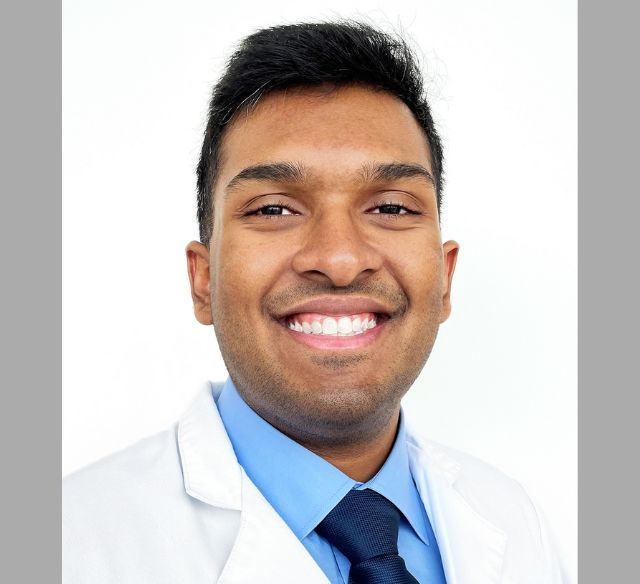 Arjun Menta, a second-year medical student, has been awarded a Paul & Daisy Soros Fellowship for New Americans, a $90,000 merit-based fellowship exclusively for immigrants and children of immigrants who are pursuing graduate studies. Fellows are chosen for their achievements and their potential to make meaningful contributions to the United States. Arjun was one of 30 fellows selected from nearly 2,000 applicants. In addition to his clinical training, Menta leads research and commercialization efforts with preeminent neurosurgical physician-innovators at the School of Medicine.
Arjun Menta, a second-year medical student, has been awarded a Paul & Daisy Soros Fellowship for New Americans, a $90,000 merit-based fellowship exclusively for immigrants and children of immigrants who are pursuing graduate studies. Fellows are chosen for their achievements and their potential to make meaningful contributions to the United States. Arjun was one of 30 fellows selected from nearly 2,000 applicants. In addition to his clinical training, Menta leads research and commercialization efforts with preeminent neurosurgical physician-innovators at the School of Medicine. -
 Neil Bressler, M.D., James P. Gills Professor of Ophthalmology, Wilmer Eye Institute, has been named to the Power List 2023 by Ophthalmologist magazine. The list recognizes the work and the impact of the top 100 most influential people in ophthalmology. Bressler focuses on retinal diseases, with special interests in diabetic retinopathy and macular degeneration.
Neil Bressler, M.D., James P. Gills Professor of Ophthalmology, Wilmer Eye Institute, has been named to the Power List 2023 by Ophthalmologist magazine. The list recognizes the work and the impact of the top 100 most influential people in ophthalmology. Bressler focuses on retinal diseases, with special interests in diabetic retinopathy and macular degeneration.
-
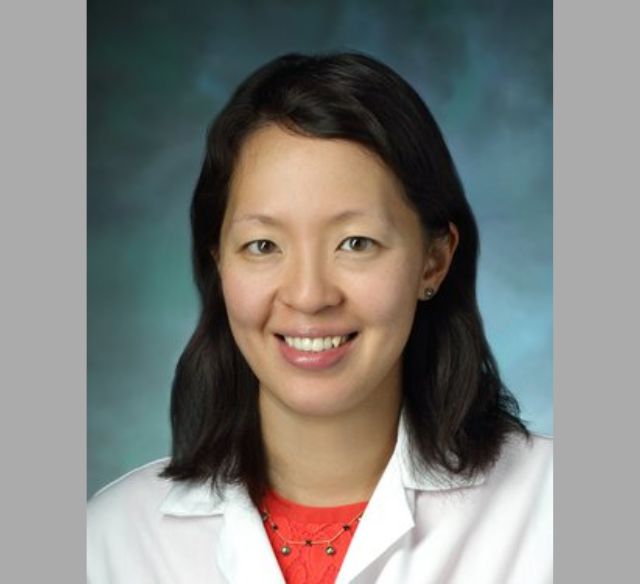 Eva Tseng, M.D., M.P.H., an assistant professor of medicine in the Division of General Internal Medicine, has been named an SGIM Research Committee Member by the Society of General Internal Medicine. Her term on the committee will start in May and last for three years. The Research Committee’s mission is to foster the career development of generalist researchers throughout mentorship, recognition of excellence, networking and skills development, according to SGIM's website.
Eva Tseng, M.D., M.P.H., an assistant professor of medicine in the Division of General Internal Medicine, has been named an SGIM Research Committee Member by the Society of General Internal Medicine. Her term on the committee will start in May and last for three years. The Research Committee’s mission is to foster the career development of generalist researchers throughout mentorship, recognition of excellence, networking and skills development, according to SGIM's website.
-
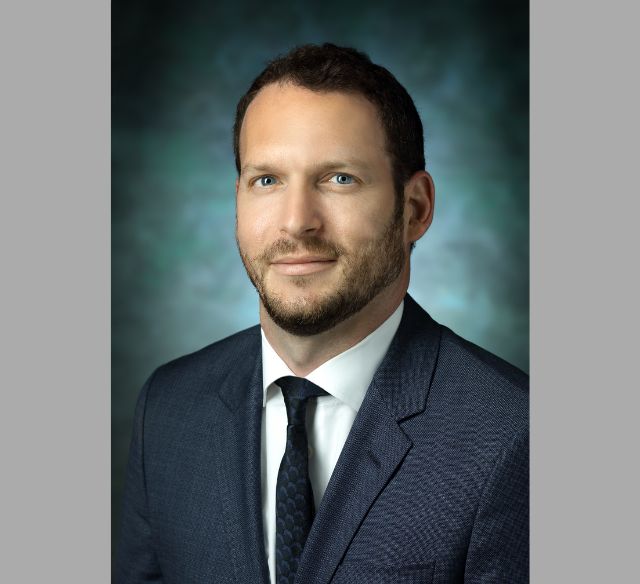 Uri Soiberman, M.D., an associate professor of ophthalmology, Wilmer Eye Institute, has received a Physician-Scientist Award from the organization Research to Prevent Blindness (RPB). Soiberman's award will fund his work developing the first topical medical treatment for keratoconus (a vision disorder that occurs when the cornea becomes misshapen and causes vision distortion). RPB has provided more than $400 million in research funding to the brightest scientists at the nation’s leading medical institutions, who are asking the most important questions to save sight.
Uri Soiberman, M.D., an associate professor of ophthalmology, Wilmer Eye Institute, has received a Physician-Scientist Award from the organization Research to Prevent Blindness (RPB). Soiberman's award will fund his work developing the first topical medical treatment for keratoconus (a vision disorder that occurs when the cornea becomes misshapen and causes vision distortion). RPB has provided more than $400 million in research funding to the brightest scientists at the nation’s leading medical institutions, who are asking the most important questions to save sight.
-
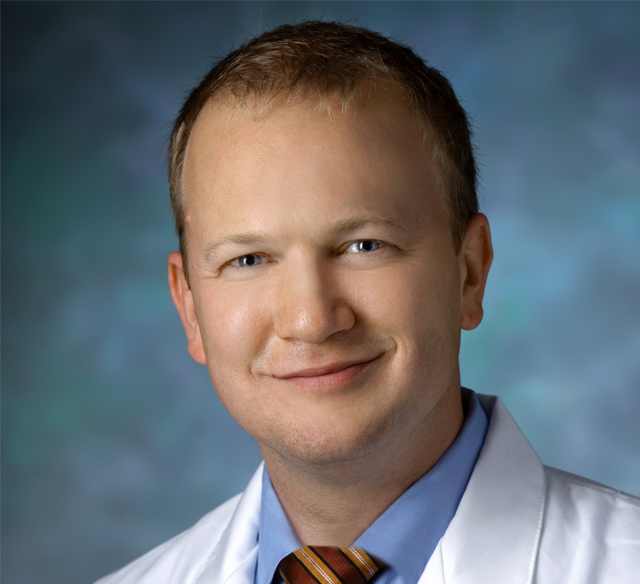 Johns Hopkins Medicine historian Jeremy Greene, M.D., Ph.D., is one of 171 scientists, writers, scholars and artists awarded 2023 Guggenheim Fellowships. Greene is the William H. Welch Professor of Medicine and History of Medicine and director of the department of the history of medicine at the Johns Hopkins University School of Medicine. Greene's fellowship is in the category of the history of science, technology and economics. Guggenheim Fellows receive financial awards, and they were selected from nearly 2,500 applicants. The Guggenheim Foundation was established in 1925 by U.S. Sen. Simon Guggenheim and his wife, Olga Guggenheim, in memory of their son John. Since its creation, the foundation has provided nearly $400 million in fellowships. Greene is a noted historian of how medical technology influences our understandings of sickness and health. He has written award-winning books on the relationship of pharmaceutical marketing to medical practice, the political economy of generic drugs, and the role of electronic media in medical care. His current research project, "Syringe Tide: Disposable Technologies and the Making of Medical Waste," focuses on the scientific, social and economic basis for the increasing disposability of medical technology and solutions to reduce the global impact of medical waste.
Johns Hopkins Medicine historian Jeremy Greene, M.D., Ph.D., is one of 171 scientists, writers, scholars and artists awarded 2023 Guggenheim Fellowships. Greene is the William H. Welch Professor of Medicine and History of Medicine and director of the department of the history of medicine at the Johns Hopkins University School of Medicine. Greene's fellowship is in the category of the history of science, technology and economics. Guggenheim Fellows receive financial awards, and they were selected from nearly 2,500 applicants. The Guggenheim Foundation was established in 1925 by U.S. Sen. Simon Guggenheim and his wife, Olga Guggenheim, in memory of their son John. Since its creation, the foundation has provided nearly $400 million in fellowships. Greene is a noted historian of how medical technology influences our understandings of sickness and health. He has written award-winning books on the relationship of pharmaceutical marketing to medical practice, the political economy of generic drugs, and the role of electronic media in medical care. His current research project, "Syringe Tide: Disposable Technologies and the Making of Medical Waste," focuses on the scientific, social and economic basis for the increasing disposability of medical technology and solutions to reduce the global impact of medical waste. -
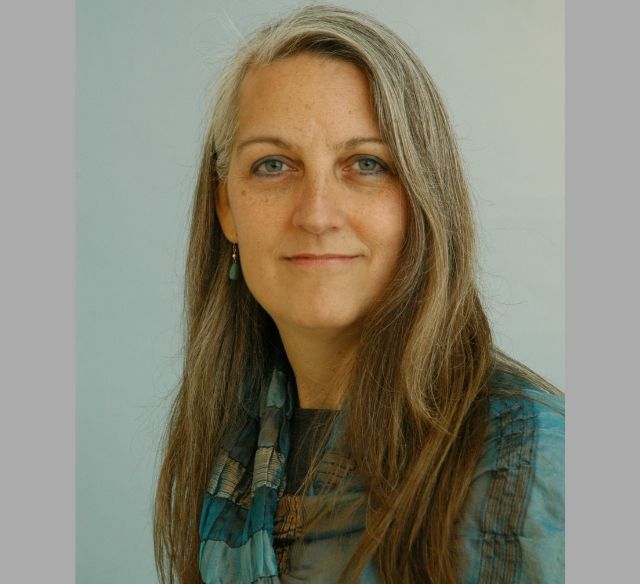 Erica Sibinga, director of ambulatory pediatrics at Johns Hopkins Bayview Medical Center, and an associate professor of pediatrics, has been appointed to a four-year term on the National Advisory Council for Complementary and Integrative Health (NACCIH). Among the responsibilities of the 18 members of the NACCIH are advising, consulting with and making recommendations to the NACCIH director regarding research activities, functions of the council and more. Sibinga, a national and international leader in mindfulness and integrative pediatrics, was appointed to the council by the secretary of the U.S. Department of Health and Human Services.
Erica Sibinga, director of ambulatory pediatrics at Johns Hopkins Bayview Medical Center, and an associate professor of pediatrics, has been appointed to a four-year term on the National Advisory Council for Complementary and Integrative Health (NACCIH). Among the responsibilities of the 18 members of the NACCIH are advising, consulting with and making recommendations to the NACCIH director regarding research activities, functions of the council and more. Sibinga, a national and international leader in mindfulness and integrative pediatrics, was appointed to the council by the secretary of the U.S. Department of Health and Human Services. -
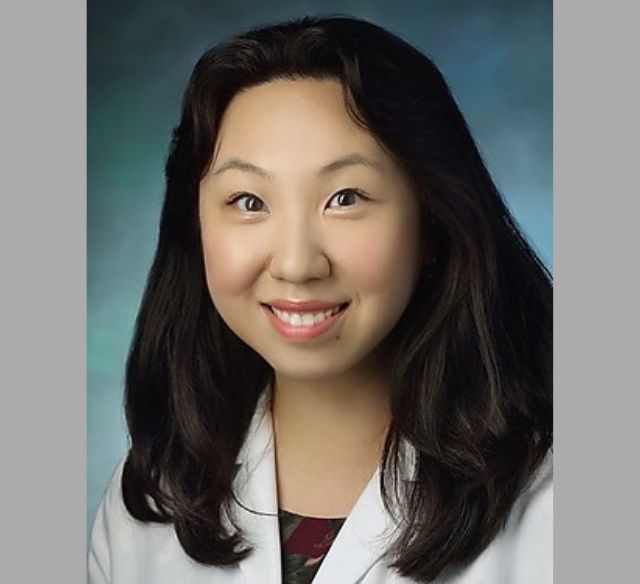 Christiana Zhang, M.D., an assistant professor of medicine, has received the 2023 Lisa J. Heiser Award for Junior Faculty Contribution in Education from the School of Medicine's Institute for Excellence in Education (IEE). The IEE's selection committee said it was very impressed by Zhang's nomination package. Her commitment to advancing education of the highest quality in so many settings and formats at Johns Hopkins and beyond is truly remarkable and worthy of recognition, the committee said. Zhang's areas of expertise include women's primary care, internal medicine and medical education. Her Teaching Philosophy Statement is so thoughtful, the committee said, and it truly reflects the spirit of the award and the work of Lisa Heiser, a late assistant dean for faculty development and equity, Johns Hopkins Medicine.
Christiana Zhang, M.D., an assistant professor of medicine, has received the 2023 Lisa J. Heiser Award for Junior Faculty Contribution in Education from the School of Medicine's Institute for Excellence in Education (IEE). The IEE's selection committee said it was very impressed by Zhang's nomination package. Her commitment to advancing education of the highest quality in so many settings and formats at Johns Hopkins and beyond is truly remarkable and worthy of recognition, the committee said. Zhang's areas of expertise include women's primary care, internal medicine and medical education. Her Teaching Philosophy Statement is so thoughtful, the committee said, and it truly reflects the spirit of the award and the work of Lisa Heiser, a late assistant dean for faculty development and equity, Johns Hopkins Medicine.
-
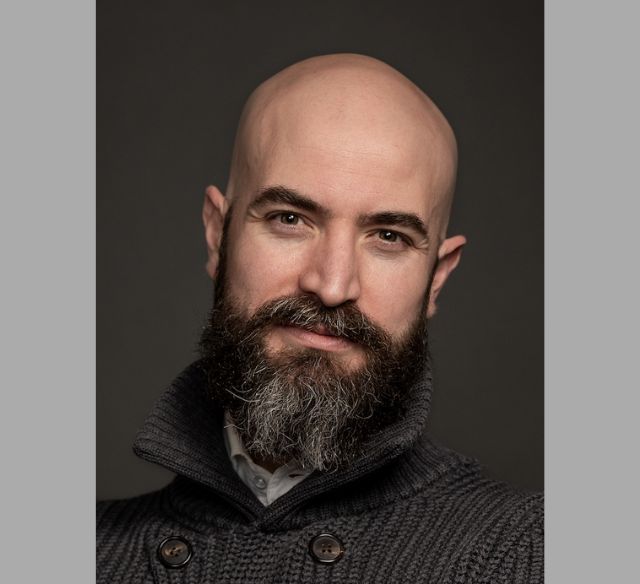 Andrea Fava, M.D., an assistant professor of medicine in the Division of Rheumatology, has been awarded the Lupus Innovation Award from the nonprofit Lupus Research Alliance. This prestigious award provides funding and support for lupus research that is considered pioneering. Lupus is an autoimmune condition that can attack multiple organ systems in the body, and the disease frequently leads to severe complications, such as kidney failure. Fava’s research focuses on exploring ways to treat and prevent kidney damage from lupus. He plans to use the funding from the alliance to develop a liquid biopsy test that will use urine samples to detect early kidney damage and inflammation. The work may lead to novel treatment and clinical management strategies that prevent severe kidney damage and kidney failure in people with lupus.
Andrea Fava, M.D., an assistant professor of medicine in the Division of Rheumatology, has been awarded the Lupus Innovation Award from the nonprofit Lupus Research Alliance. This prestigious award provides funding and support for lupus research that is considered pioneering. Lupus is an autoimmune condition that can attack multiple organ systems in the body, and the disease frequently leads to severe complications, such as kidney failure. Fava’s research focuses on exploring ways to treat and prevent kidney damage from lupus. He plans to use the funding from the alliance to develop a liquid biopsy test that will use urine samples to detect early kidney damage and inflammation. The work may lead to novel treatment and clinical management strategies that prevent severe kidney damage and kidney failure in people with lupus. -
 Shinjini Kundu, M.D., Ph.D., a resident and researcher in the Russell H. Morgan department of radiology and radiological science, has been named a Young Global Leader by the World Economic Forum. She joins a class of nearly 100 new Young Global Leaders from the around the world, which includes individuals with exceptional accomplishments in technology, business innovators, activists and more. Kundu’s research focuses on using artificial intelligence in medical images to identify patterns and abnormalities the human eye may not see. Using this technology, physicians are able to diagnose patients’ diseases earlier and more accurately, potentially improving treatments and health outcomes. Previously, Kundu was also named to Forbes 30 under 30 and MIT Technology Review 35 under 35 lists.
Shinjini Kundu, M.D., Ph.D., a resident and researcher in the Russell H. Morgan department of radiology and radiological science, has been named a Young Global Leader by the World Economic Forum. She joins a class of nearly 100 new Young Global Leaders from the around the world, which includes individuals with exceptional accomplishments in technology, business innovators, activists and more. Kundu’s research focuses on using artificial intelligence in medical images to identify patterns and abnormalities the human eye may not see. Using this technology, physicians are able to diagnose patients’ diseases earlier and more accurately, potentially improving treatments and health outcomes. Previously, Kundu was also named to Forbes 30 under 30 and MIT Technology Review 35 under 35 lists. -
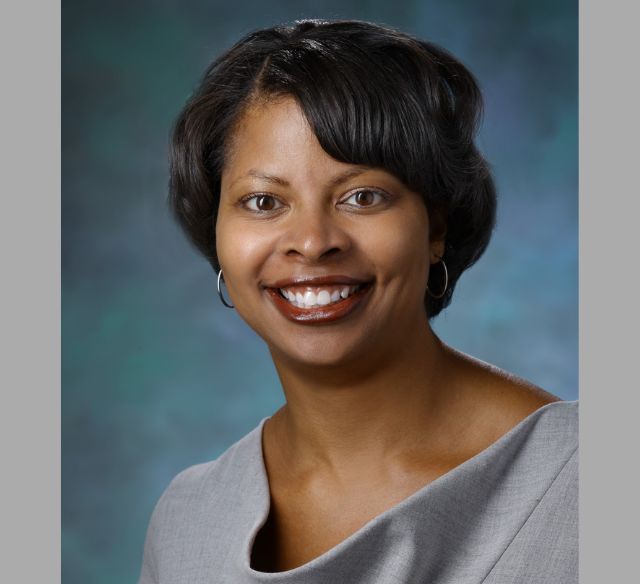 Adrienne Scott, M.D., associate professor of ophthalmology, Wilmer Eye Institute, has received a 2022 Clinical Excellence Award for Best Consulting Physician — Johns Hopkins Hospital from Johns Hopkins Medicine. Clinical Excellence Awards are given in recognition of clinicians whose work has demonstrated consistent excellence. Scott is a retina specialist who treats patients across the spectrum of vitreoretinal medical and surgical diseases, including macular degeneration, diabetic retinopathy, retinal detachments and more.
Adrienne Scott, M.D., associate professor of ophthalmology, Wilmer Eye Institute, has received a 2022 Clinical Excellence Award for Best Consulting Physician — Johns Hopkins Hospital from Johns Hopkins Medicine. Clinical Excellence Awards are given in recognition of clinicians whose work has demonstrated consistent excellence. Scott is a retina specialist who treats patients across the spectrum of vitreoretinal medical and surgical diseases, including macular degeneration, diabetic retinopathy, retinal detachments and more. -
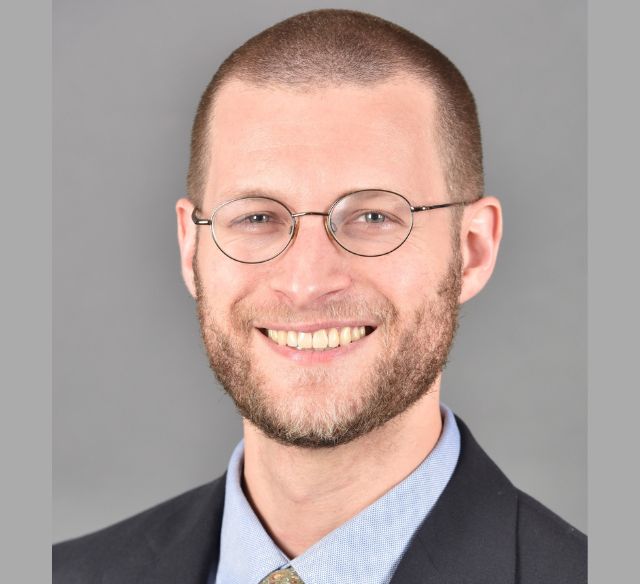 Aaron Hauptman, M.D., a pediatric and adult neuropsychiatrist at the Kennedy Krieger Institute, has received the Sidney R. Baer Jr. ANPA (American Neuropsychiatric Association) Career Development Award. Hauptman, who is also an assistant professor of psychiatry and behavioral sciences at the Johns Hopkins University School of Medicine, was honored for his work as a clinical educator and as an advocate for pediatric neuropsychiatry. The award recognizes the outstanding accomplishments of a neuropsychiatry, behavioral neurology or neuropsychology advanced trainee or faculty member within five years of completing postgraduate education. The award was presented in March during the 33rd annual ANPA meeting, held in Boston.
Aaron Hauptman, M.D., a pediatric and adult neuropsychiatrist at the Kennedy Krieger Institute, has received the Sidney R. Baer Jr. ANPA (American Neuropsychiatric Association) Career Development Award. Hauptman, who is also an assistant professor of psychiatry and behavioral sciences at the Johns Hopkins University School of Medicine, was honored for his work as a clinical educator and as an advocate for pediatric neuropsychiatry. The award recognizes the outstanding accomplishments of a neuropsychiatry, behavioral neurology or neuropsychology advanced trainee or faculty member within five years of completing postgraduate education. The award was presented in March during the 33rd annual ANPA meeting, held in Boston. -
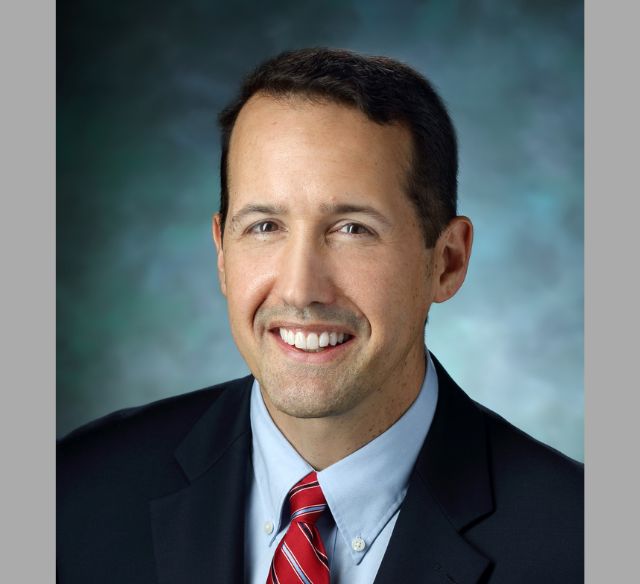 Charles Della Santina, M.D., Ph.D., professor of otolaryngology–head and neck surgery and biomedical engineering, has been inducted into the American Institute for Medical and Biological Engineering (AIMBE) College of Fellows. The AIMBE honors those who have made outstanding contributions to “engineering and medicine research, practice, or education” and to “the pioneering of new and developing fields of technology, making major advancements in traditional fields of medical and biological engineering or developing/implementing innovative approaches to bioengineering education.” Della Santina was nominated and elected by peers for his “pioneering contributions to research and development of vestibular implants to aid individuals disabled by loss of inner ear function.” As director of the Johns Hopkins Vestibular NeuroEngineering Laboratory, he has led vestibular implant research for 20 years, from basic science and device engineering to a clinical trial currently active at Johns Hopkins Medicine. In that trial, which was recently detailed in the New England Journal of Medicine, is the first and only trial [at the time of this posting] in which patients receive vestibular implant stimulation as a treatment for use in daily life rather than only during brief test sessions in a clinic or laboratory.
Charles Della Santina, M.D., Ph.D., professor of otolaryngology–head and neck surgery and biomedical engineering, has been inducted into the American Institute for Medical and Biological Engineering (AIMBE) College of Fellows. The AIMBE honors those who have made outstanding contributions to “engineering and medicine research, practice, or education” and to “the pioneering of new and developing fields of technology, making major advancements in traditional fields of medical and biological engineering or developing/implementing innovative approaches to bioengineering education.” Della Santina was nominated and elected by peers for his “pioneering contributions to research and development of vestibular implants to aid individuals disabled by loss of inner ear function.” As director of the Johns Hopkins Vestibular NeuroEngineering Laboratory, he has led vestibular implant research for 20 years, from basic science and device engineering to a clinical trial currently active at Johns Hopkins Medicine. In that trial, which was recently detailed in the New England Journal of Medicine, is the first and only trial [at the time of this posting] in which patients receive vestibular implant stimulation as a treatment for use in daily life rather than only during brief test sessions in a clinic or laboratory. -
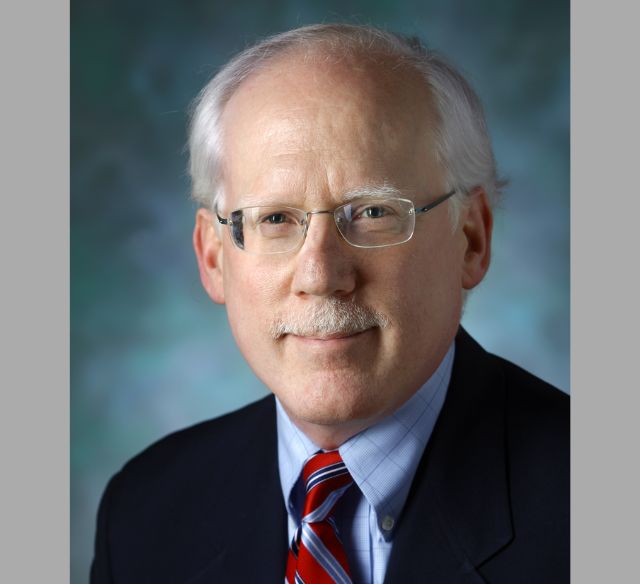 Robert Wood, M.D., Johns Hopkins Children’s Center director of pediatric allergy, immunology and rheumatology, has been awarded the Distinguished Clinician Award from the American Academy of Allergy, Asthma, and Immunology (AAAAI). Wood, who is also a professor of pediatrics at the Johns Hopkins University School of Medicine, was recognized for his commitment to patient care and clinical investigation focused on the diagnosis, treatment and prevention of asthma and allergic disease. The award was presented in February at the AAAAI meeting in San Antonio.
Robert Wood, M.D., Johns Hopkins Children’s Center director of pediatric allergy, immunology and rheumatology, has been awarded the Distinguished Clinician Award from the American Academy of Allergy, Asthma, and Immunology (AAAAI). Wood, who is also a professor of pediatrics at the Johns Hopkins University School of Medicine, was recognized for his commitment to patient care and clinical investigation focused on the diagnosis, treatment and prevention of asthma and allergic disease. The award was presented in February at the AAAAI meeting in San Antonio. -
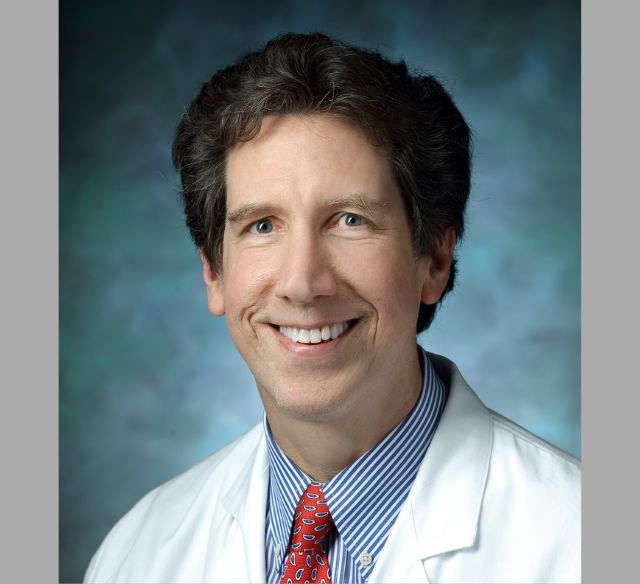 On Friday, March 3, local Paralympian gold-medalist Tatyana McFadden presented hematologist Michael Streiff, M.D., with an Order of Ikkos medal to thank him for his excellent care in treating her blood clot. The United States Olympic and Paralympic Committee’s Order of Ikkos medal allows medalists to honor mentors who have helped them in their journey toward world-class athletic success. The gifting, which took place at the annual Johns Hopkins Venous Thromboembolism Symposium, was a complete surprise to Streiff, who is medical director of the Johns Hopkins Hospital Special Coagulation Laboratory, and it showcased a strong, fruitful doctor-patient relationship.
On Friday, March 3, local Paralympian gold-medalist Tatyana McFadden presented hematologist Michael Streiff, M.D., with an Order of Ikkos medal to thank him for his excellent care in treating her blood clot. The United States Olympic and Paralympic Committee’s Order of Ikkos medal allows medalists to honor mentors who have helped them in their journey toward world-class athletic success. The gifting, which took place at the annual Johns Hopkins Venous Thromboembolism Symposium, was a complete surprise to Streiff, who is medical director of the Johns Hopkins Hospital Special Coagulation Laboratory, and it showcased a strong, fruitful doctor-patient relationship.
-
 School of Medicine students Rachael Workman Sparklin, Ph.D., Biochemistry, Cellular and Molecular Biology (BCMB) program, and Roger Zou, M.D.-Ph.D., Medical Scientist Training Program (MSTP), were named recipients of the Harold M. Weintraub Graduate Student Award by the Fred Hutchinson Cancer Center on March 1. Just 12 U.S. graduate students were selected for this prestigious award, which recognizes outstanding achievement in graduate studies in biological sciences. Sparklin's topic of study: Investigating tracrRNA regulation in CRISPR-Cas bacterial immunity. "My research has focused on how CRISPR-Cas systems are regulated to maximize targeting of foreign agents while avoiding autoimmunity," Sparklin says. Zou's topic: CRISPR and DNA repair. "CRISPR-Cas systems have revolutionized the way scientists can edit the genomes of living organisms. My graduate research was on engineering better control over such systems, as tools to better control genome editing and as a powerful approach to study how cells can efficiently repair damage to its DNA," Zou says.
School of Medicine students Rachael Workman Sparklin, Ph.D., Biochemistry, Cellular and Molecular Biology (BCMB) program, and Roger Zou, M.D.-Ph.D., Medical Scientist Training Program (MSTP), were named recipients of the Harold M. Weintraub Graduate Student Award by the Fred Hutchinson Cancer Center on March 1. Just 12 U.S. graduate students were selected for this prestigious award, which recognizes outstanding achievement in graduate studies in biological sciences. Sparklin's topic of study: Investigating tracrRNA regulation in CRISPR-Cas bacterial immunity. "My research has focused on how CRISPR-Cas systems are regulated to maximize targeting of foreign agents while avoiding autoimmunity," Sparklin says. Zou's topic: CRISPR and DNA repair. "CRISPR-Cas systems have revolutionized the way scientists can edit the genomes of living organisms. My graduate research was on engineering better control over such systems, as tools to better control genome editing and as a powerful approach to study how cells can efficiently repair damage to its DNA," Zou says. -
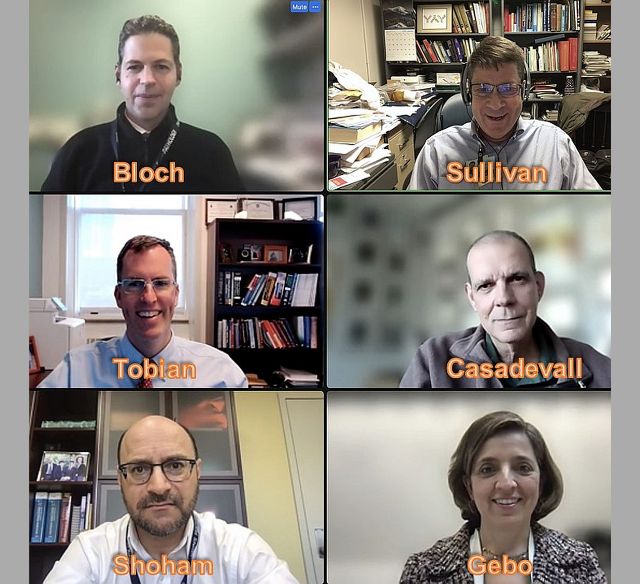 The Clinical Research Forum has honored a 2022 study published in the New England Journal of Medicine (“Early Outpatient Treatment for COVID-19 with Convalescent Plasma”) with one of its 2023 Top 10 Clinical Research Achievement Awards. The study showed that plasma from patients who have recovered from COVID-19 and whose blood contains antibodies against the causative agent, SARS-CoV-2, is an effective and safe option as an early outpatient COVID-19 treatment to reduce hospitalizations. David Sullivan, M.D., and Kelly Gebo, M.D., M.P.H., co-led the multi-institutional study directed by the Johns Hopkins Bloomberg School of Public Health and Johns Hopkins Medicine. Along with Sullivan and Gebo, the Johns Hopkins study team members are study senior authors Daniel Hanley, M.D.; Arturo Casadevall, M.D., Ph.D.; and Aaron Tobian, M.D., Ph.D.; along with researchers Lawrence Appel, M.D., M.P.H.; Sheriza Baksh, Ph.D., M.P.H.; Evan Bloch, M.B., Ch.B.; Stephan Ehrhardt, M.D., M.P.H.; Amy Gawad, M.P.H.; Laura Hammitt, M.D.; Douglas Jabs, M.D., M.B.A.; Nicki Karlen; Sabra Klein, Ph.D.; Karen Lane, C.C.R.P.; Bryan Lau, Ph.D.; Christi Marshall; Nichol McBee, M.P.H.; Oliver Layendecker, Ph.D.; Andrew Pekosz, Ph.D.; David Shade, J.D.; Shmuel Shoham, M.D.; Catherine Sutcliffe, Ph.D.; and Anusha Yarava, Pharm.D.
The Clinical Research Forum has honored a 2022 study published in the New England Journal of Medicine (“Early Outpatient Treatment for COVID-19 with Convalescent Plasma”) with one of its 2023 Top 10 Clinical Research Achievement Awards. The study showed that plasma from patients who have recovered from COVID-19 and whose blood contains antibodies against the causative agent, SARS-CoV-2, is an effective and safe option as an early outpatient COVID-19 treatment to reduce hospitalizations. David Sullivan, M.D., and Kelly Gebo, M.D., M.P.H., co-led the multi-institutional study directed by the Johns Hopkins Bloomberg School of Public Health and Johns Hopkins Medicine. Along with Sullivan and Gebo, the Johns Hopkins study team members are study senior authors Daniel Hanley, M.D.; Arturo Casadevall, M.D., Ph.D.; and Aaron Tobian, M.D., Ph.D.; along with researchers Lawrence Appel, M.D., M.P.H.; Sheriza Baksh, Ph.D., M.P.H.; Evan Bloch, M.B., Ch.B.; Stephan Ehrhardt, M.D., M.P.H.; Amy Gawad, M.P.H.; Laura Hammitt, M.D.; Douglas Jabs, M.D., M.B.A.; Nicki Karlen; Sabra Klein, Ph.D.; Karen Lane, C.C.R.P.; Bryan Lau, Ph.D.; Christi Marshall; Nichol McBee, M.P.H.; Oliver Layendecker, Ph.D.; Andrew Pekosz, Ph.D.; David Shade, J.D.; Shmuel Shoham, M.D.; Catherine Sutcliffe, Ph.D.; and Anusha Yarava, Pharm.D. -
Elliot K. Fishman, M.D., professor of radiology and radiological science and director of diagnostic imaging and body computed tomography, and his team have received a $3.28 million grant from the Lustgarten Foundation for Pancreatic Cancer Research. The grant is also in collaboration with Microsoft, and it will fund multiple new and continuing multidisciplinary research projects. The team seeks to investigate methods for early detection and staging of pancreatic tumors and cancer as well as understanding other pancreatic lesions and their risk factors for malignancy. Fishman and his collaborators are seeking to explore using artificial intelligence to predict at-risk patients and algorithms to analyze medical imaging data from patients with pancreatic disease, among other projects. The team, which spans the gastroenterology, oncology, pathology and surgical departments at The Johns Hopkins Hospital, hopes to use its findings to create prototype programs to expand pancreatic cancer testing and early diagnosis.
-
 The HEPIUS Innovation Lab, which unites Johns Hopkins neurosurgeons, biomedical engineers, scientists, radiologists and other physicians to identify major clinical needs for spinal cord injury patients and drive the development of new imaging modalities, drug delivery and minimally invasive therapeutic technologies, has been recognized as one of eight local organizations to receive the Maryland Inno's 2023 Fire Award. This honor recognizes local organizations advancing the status quo by providing new technology and solutions to address critical challenges. The Fire Award is the premier recognition program for Maryland Inno, the Baltimore Business Journal's tech-focused publication. To learn more about HEPIUS, click here.
The HEPIUS Innovation Lab, which unites Johns Hopkins neurosurgeons, biomedical engineers, scientists, radiologists and other physicians to identify major clinical needs for spinal cord injury patients and drive the development of new imaging modalities, drug delivery and minimally invasive therapeutic technologies, has been recognized as one of eight local organizations to receive the Maryland Inno's 2023 Fire Award. This honor recognizes local organizations advancing the status quo by providing new technology and solutions to address critical challenges. The Fire Award is the premier recognition program for Maryland Inno, the Baltimore Business Journal's tech-focused publication. To learn more about HEPIUS, click here. -
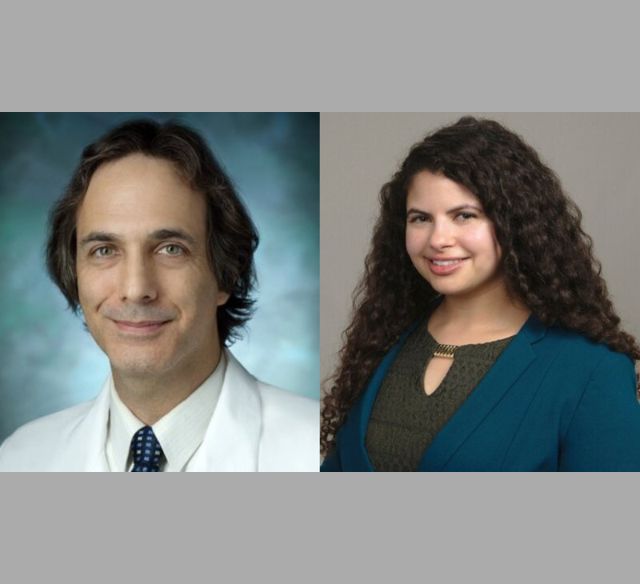
Arik Marcell, M.D., M.P.H., adolescent medicine physician and associate professor of pediatrics, and Annemarie McCartney Swamy, M.D., M.P.H., adolescent medicine fellow, have received the 2023 Vaughn Rickert Vaccine Research Award from the Society for Adolescent Health and Medicine (SAHM) for their abstract "A System-Level Approach to Improve Uptake of First COVID-19 Vaccine Dose Among Various Age Groups Within a Primary Care Setting: The Value of Health Educators." The award was presented March 7 during the society’s annual meeting in Chicago. Named in honor of a clinical psychologist and past SAHM president who died in 2015, the award recognizes the top-rated abstract submission focused on vaccination research. -
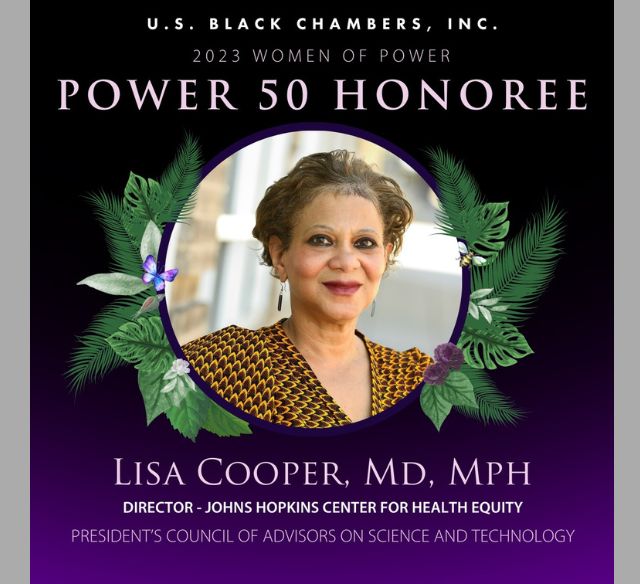 Lisa A. Cooper, M.D., M.P.H., F.A.C.P., the James F. Fries Professor of Medicine and a Bloomberg Distinguished Professor with primary appointments in Johns Hopkins University School of Medicine, School of Nursing and Bloomberg School of Public Health, has been named to the 2023 Women of Power list by the U.S. Black Chambers Inc. Inclusion in the list is an annual honor bestowed upon 50 women who embody the spirit of the organization — unwavering dedication to making a difference in their communities and the world at large. Cooper, who also is director of the Johns Hopkins Center for Health Equity and the Johns Hopkins Urban Health Institute, was recognized as a Power 50 Honoree for her decades of work as a clinician and researcher in health equity.
Lisa A. Cooper, M.D., M.P.H., F.A.C.P., the James F. Fries Professor of Medicine and a Bloomberg Distinguished Professor with primary appointments in Johns Hopkins University School of Medicine, School of Nursing and Bloomberg School of Public Health, has been named to the 2023 Women of Power list by the U.S. Black Chambers Inc. Inclusion in the list is an annual honor bestowed upon 50 women who embody the spirit of the organization — unwavering dedication to making a difference in their communities and the world at large. Cooper, who also is director of the Johns Hopkins Center for Health Equity and the Johns Hopkins Urban Health Institute, was recognized as a Power 50 Honoree for her decades of work as a clinician and researcher in health equity. -
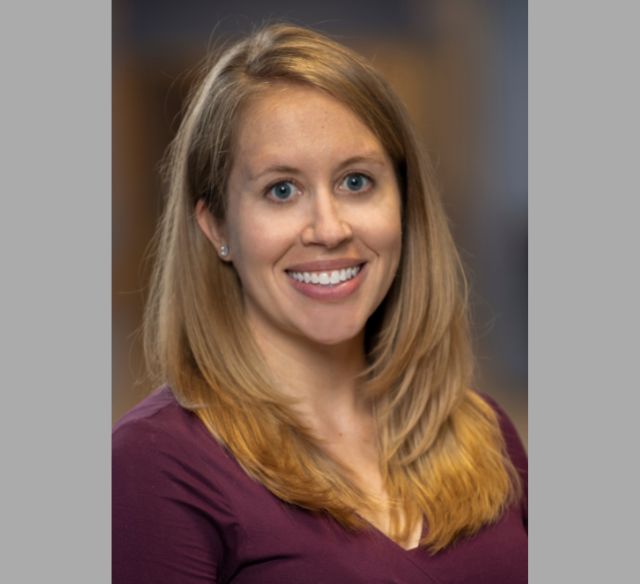
Mary Beth Howard, M.D., M.Sc., a pediatric emergency medicine physician and assistant professor of pediatrics, has been awarded a $70,000 grant from the American SIDS Institute to study a new method to prevent sudden infant deaths. Sudden unexpected infant death (SUID), which includes sudden infant death syndrome (SIDS), is unexplained death of an apparently healthy baby that often occurs during sleep. About 3,400 babies in the United States die due to SUID each year, according to the U.S. Centers for Disease Control and Prevention. In the study, which will take place at Johns Hopkins Children’s Center, Howard and her research team will incorporate SIDS prevention into a mobile health application and study whether the tool can successfully help educate families that visit the pediatric emergency department about SIDS and prevention measures, including laying babies flat on their backs and in a crib alone.
-
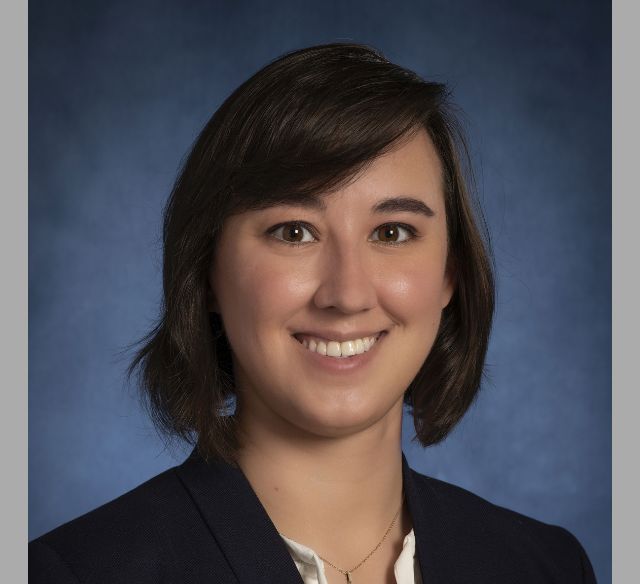 Jessica Ballou, M.D., M.P.H., chief resident in the Department of Plastic and Reconstructive Surgery, has been inducted into the Gold Humanism Honor Society (GHHS) by the University of Maryland School of Medicine. She is one of six residents recognized this year for their “compassion, humanism and dedication to patients and students alike, making a deeply positive and lasting impact on their education.” According to department director Rick Redett, M.D.: “This is a tremendous honor as GHHS members are peer nominated and are the physicians that others say they would want taking care of their family.” Ballou’s professional interests focus on burn and trauma reconstruction with an emphasis on incorporating surgical palliative care.
Jessica Ballou, M.D., M.P.H., chief resident in the Department of Plastic and Reconstructive Surgery, has been inducted into the Gold Humanism Honor Society (GHHS) by the University of Maryland School of Medicine. She is one of six residents recognized this year for their “compassion, humanism and dedication to patients and students alike, making a deeply positive and lasting impact on their education.” According to department director Rick Redett, M.D.: “This is a tremendous honor as GHHS members are peer nominated and are the physicians that others say they would want taking care of their family.” Ballou’s professional interests focus on burn and trauma reconstruction with an emphasis on incorporating surgical palliative care. -
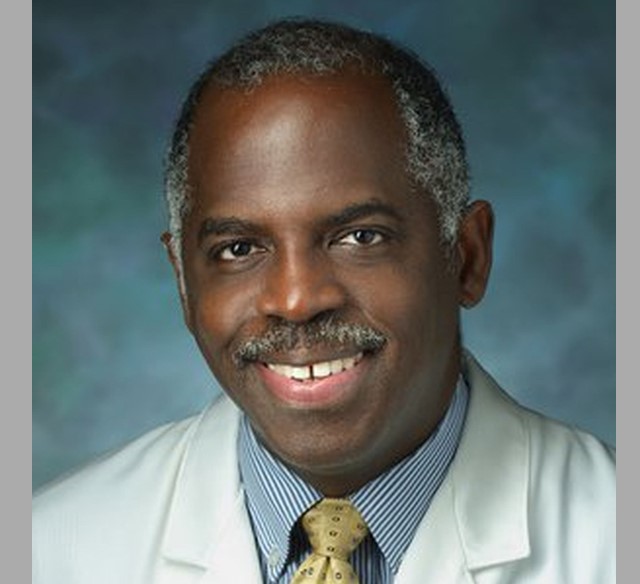 Joel Blankson, M.D., Ph.D., professor of medicine and professor of molecular and comparative pathobiology, has been elected by the American Society of Microbiology (ASM) as a 2023 fellow of the organization’s American Academy of Microbiology. Election to the academy — an honorific leadership group and think tank within the ASM — is based on a person’s “record of scientific achievement and original contributions that have advanced microbiology.” Blankson’s areas of expertise include HIV pathogenesis and infectious disease, including the natural control of HIV-1 infection. During the COVID-19 pandemic, he also has increased understanding of the immune system’s response to SARS-CoV-2, the virus that causes the disease.
Joel Blankson, M.D., Ph.D., professor of medicine and professor of molecular and comparative pathobiology, has been elected by the American Society of Microbiology (ASM) as a 2023 fellow of the organization’s American Academy of Microbiology. Election to the academy — an honorific leadership group and think tank within the ASM — is based on a person’s “record of scientific achievement and original contributions that have advanced microbiology.” Blankson’s areas of expertise include HIV pathogenesis and infectious disease, including the natural control of HIV-1 infection. During the COVID-19 pandemic, he also has increased understanding of the immune system’s response to SARS-CoV-2, the virus that causes the disease.
-
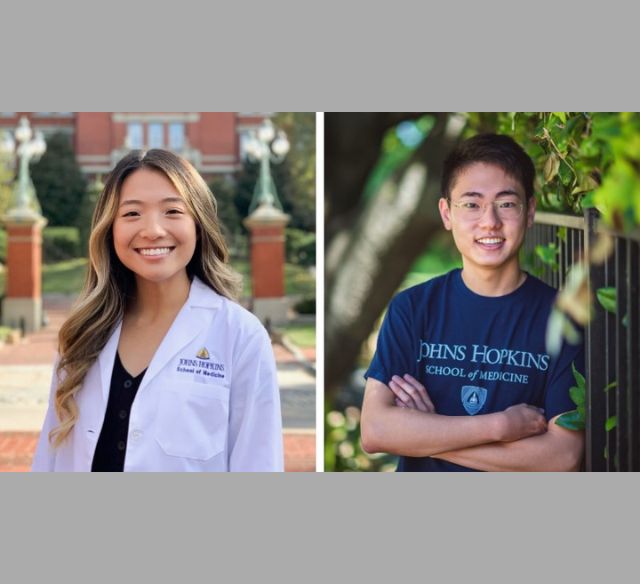 The American Cochlear Implant Alliance (ACI Alliance) announced student scholarship award recipients for its 2023 annual meeting in Dallas in June. Emily Huang and Raymond So from the Johns Hopkins University School of Medicine were among the 22 students chosen for this prestigious award. ACI Alliance is a not-for-profit membership organization created with the purpose of eliminating barriers to cochlear implantation by sponsoring research, driving heightened awareness and advocating for improved access to cochlear implants for patients of all ages across the United States.
The American Cochlear Implant Alliance (ACI Alliance) announced student scholarship award recipients for its 2023 annual meeting in Dallas in June. Emily Huang and Raymond So from the Johns Hopkins University School of Medicine were among the 22 students chosen for this prestigious award. ACI Alliance is a not-for-profit membership organization created with the purpose of eliminating barriers to cochlear implantation by sponsoring research, driving heightened awareness and advocating for improved access to cochlear implants for patients of all ages across the United States.
-
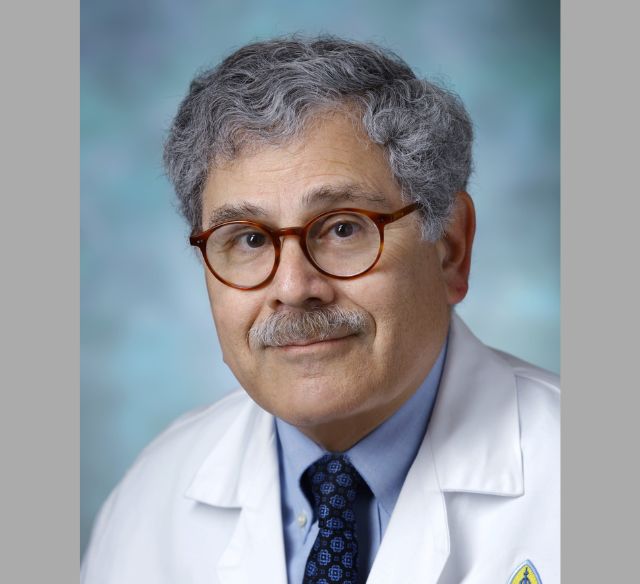 Mark Donowitz, professor in the Division of Gastroenterology and Hepatology and the Department of Physiology at Johns Hopkins Medicine, has been selected to give the 15th Hans H. Ussing Lecture on April 20 at the American Physiological Society Summit in Long Beach, Calif. This is an honorary lecture by a scientist who has made major contributions to the areas of epithelial biology and transport. It honors Hans Ussing, who developed the techniques to identify and quantitate active epithelial transport. Donowitz was selected for his studies on normal physiologic mechanisms of intestinal salt and water transport, how the process is regulated and becomes abnormal in diarrheal disease, which can lead to drug development for treating diarrhea. He joins a long list of distinguished physiologists to give the lecture, and is the second Johns Hopkins Medicine faculty member honored, after Peter Agre, M.D., who received the honor after winning the Nobel Prize in Chemistry in 2003.
Mark Donowitz, professor in the Division of Gastroenterology and Hepatology and the Department of Physiology at Johns Hopkins Medicine, has been selected to give the 15th Hans H. Ussing Lecture on April 20 at the American Physiological Society Summit in Long Beach, Calif. This is an honorary lecture by a scientist who has made major contributions to the areas of epithelial biology and transport. It honors Hans Ussing, who developed the techniques to identify and quantitate active epithelial transport. Donowitz was selected for his studies on normal physiologic mechanisms of intestinal salt and water transport, how the process is regulated and becomes abnormal in diarrheal disease, which can lead to drug development for treating diarrhea. He joins a long list of distinguished physiologists to give the lecture, and is the second Johns Hopkins Medicine faculty member honored, after Peter Agre, M.D., who received the honor after winning the Nobel Prize in Chemistry in 2003. -
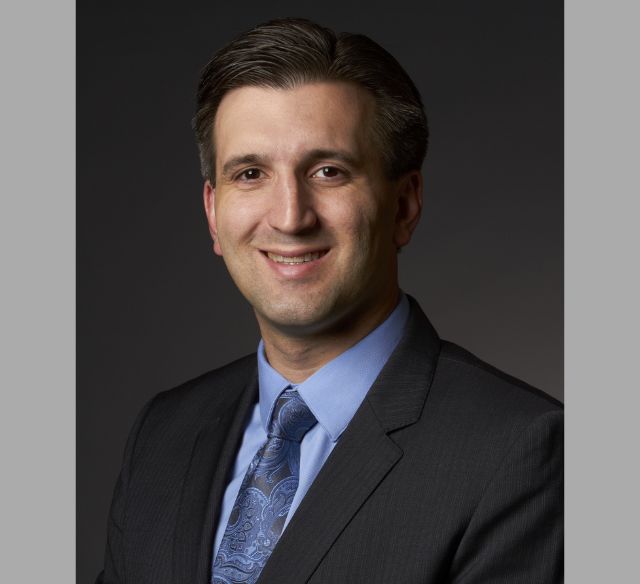 Amir Kashani, M.D., Ph.D., the Boone Pickens Professor of Ophthalmology and an associate professor of ophthalmology, Wilmer Eye Institute, has received the National Eye Institute Director's Award and the National Institutes of Health Clinical Center CEO Award from the National Institutes of Health. The awards recognize Kashani for his contributions to delivery of an induced pluripotent stem cell-derived retinal pigment epithelium monolayer into a human subject in the United States.
Amir Kashani, M.D., Ph.D., the Boone Pickens Professor of Ophthalmology and an associate professor of ophthalmology, Wilmer Eye Institute, has received the National Eye Institute Director's Award and the National Institutes of Health Clinical Center CEO Award from the National Institutes of Health. The awards recognize Kashani for his contributions to delivery of an induced pluripotent stem cell-derived retinal pigment epithelium monolayer into a human subject in the United States. -
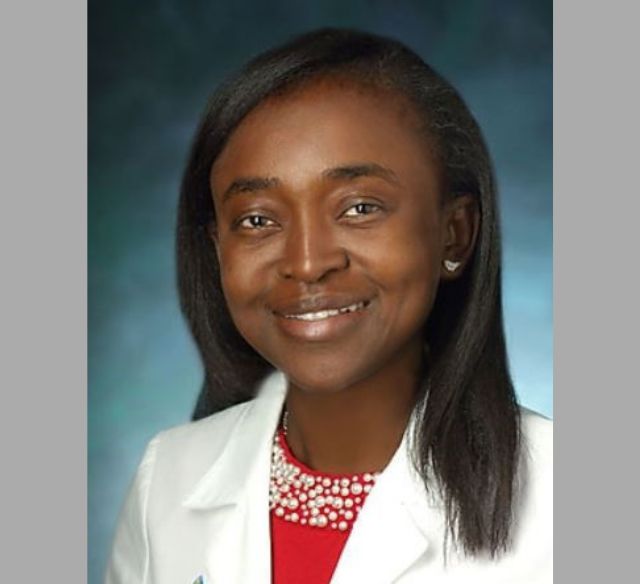 Oluwakemi Badaki-Makun, M.D., assistant professor of pediatrics and pediatric emergency medicine physician at Johns Hopkins Children’s Center, in collaboration with Massachusetts General Hospital, received a $725,368 grant from the Biomedical Advanced Research and Development Authority, part of the Administration for Strategic Preparedness & Response at the U.S. Department of Health and Human Services. The grant will fund research to identify risks of sepsis among children by using novel biomarkers and to improve outcomes for patients who do become septic. The goal of the research is to validate the use of monocyte distribution width (MDW), a hematology biomarker available with a complete blood count test to rapidly identify children in the emergency department with early signs of severe illness from infection, particularly those with high fevers. Badaki-Makun previously published research on the use of MDW as a screening tool for sepsis and SARS-CoV-2 and influenza.
Oluwakemi Badaki-Makun, M.D., assistant professor of pediatrics and pediatric emergency medicine physician at Johns Hopkins Children’s Center, in collaboration with Massachusetts General Hospital, received a $725,368 grant from the Biomedical Advanced Research and Development Authority, part of the Administration for Strategic Preparedness & Response at the U.S. Department of Health and Human Services. The grant will fund research to identify risks of sepsis among children by using novel biomarkers and to improve outcomes for patients who do become septic. The goal of the research is to validate the use of monocyte distribution width (MDW), a hematology biomarker available with a complete blood count test to rapidly identify children in the emergency department with early signs of severe illness from infection, particularly those with high fevers. Badaki-Makun previously published research on the use of MDW as a screening tool for sepsis and SARS-CoV-2 and influenza. -
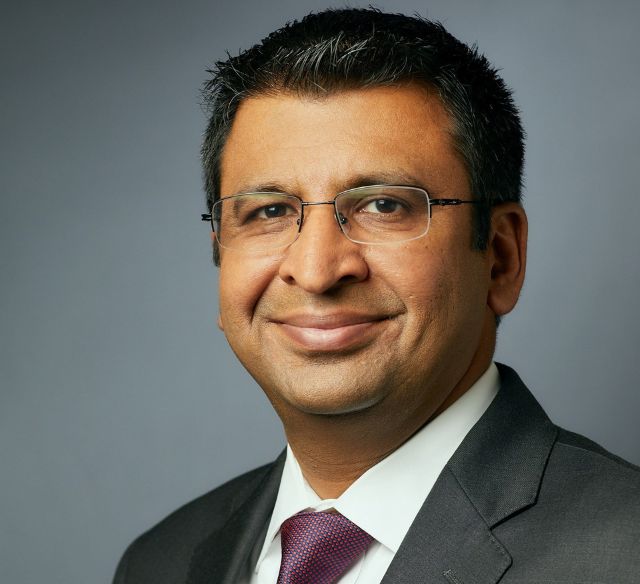 Chirag Parikh, M.D., Ph.D., professor of medicine and director of the Division of Nephrology, and his team have received two awards totaling around $6 million over a 5-year period to continue research in addressing and improving outcomes for patients with acute kidney injury (AKI). The Caring for OutPatients After Acute Kidney Injury Project (COPE-AKI) Trial is a multicenter trial funded by the National Institutes of Diabetes and Digestive and Kidney Diseases (NIDDK) for $3.3 million. The trial aims to evaluate the impact of systematic post-discharge nephrology and pharmacy follow-up among patients with in-hospital stage 2 and 3 AKI to reduce readmissions and improve outcomes compared to the usual care of patients. Parikh was also re-funded for another 5-year cycle with NIDDK Kidney Precision Medicine Project (KPMP) Consortium for $2.7 million. The KPMP strives to create a diverse kidney tissue atlas from participants with acute kidney injury or chronic kidney disease to define disease subgroups and identify critical cells, pathways or targets for novel therapies and diagnostic testing. Johns Hopkins has been an AKI recruitment site since the initiation of the study.
Chirag Parikh, M.D., Ph.D., professor of medicine and director of the Division of Nephrology, and his team have received two awards totaling around $6 million over a 5-year period to continue research in addressing and improving outcomes for patients with acute kidney injury (AKI). The Caring for OutPatients After Acute Kidney Injury Project (COPE-AKI) Trial is a multicenter trial funded by the National Institutes of Diabetes and Digestive and Kidney Diseases (NIDDK) for $3.3 million. The trial aims to evaluate the impact of systematic post-discharge nephrology and pharmacy follow-up among patients with in-hospital stage 2 and 3 AKI to reduce readmissions and improve outcomes compared to the usual care of patients. Parikh was also re-funded for another 5-year cycle with NIDDK Kidney Precision Medicine Project (KPMP) Consortium for $2.7 million. The KPMP strives to create a diverse kidney tissue atlas from participants with acute kidney injury or chronic kidney disease to define disease subgroups and identify critical cells, pathways or targets for novel therapies and diagnostic testing. Johns Hopkins has been an AKI recruitment site since the initiation of the study. -
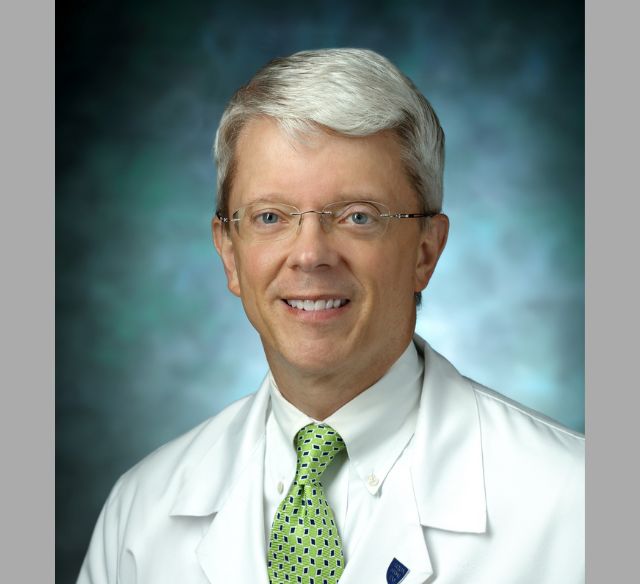 Stephen D. Sisson, M.D., professor of medicine and vice president of clinical operations for the Office of Johns Hopkins Physicians, has been appointed president-elect of the American College of Physicians (ACP) ?for April 2023-2024 and president of the ACP for April 2024-2025, effective April 29, 2023.
Stephen D. Sisson, M.D., professor of medicine and vice president of clinical operations for the Office of Johns Hopkins Physicians, has been appointed president-elect of the American College of Physicians (ACP) ?for April 2023-2024 and president of the ACP for April 2024-2025, effective April 29, 2023. -
-
 The Harriet Lane Clinic at Johns Hopkins Children’s Center, in collaboration with the Maryland chapter of the American Academy of Pediatrics, has earned a $25,000 grant from No Kid Hungry, a national nonprofit organization that helps reduce hunger and poverty around the world. Pediatric emergency medicine physician Hanae Fujii-Rios (pictured, left); Johns Hopkins Division of General Pediatrics chief Barry Solomon (center); and Hopkins Community Connection program manager Kristin Topel (right) led the development of the proposal for the grant funding, which will help further the clinic’s work to improve food insecurity screening among families — connecting them with much-needed federal resources, through an online platform.
The Harriet Lane Clinic at Johns Hopkins Children’s Center, in collaboration with the Maryland chapter of the American Academy of Pediatrics, has earned a $25,000 grant from No Kid Hungry, a national nonprofit organization that helps reduce hunger and poverty around the world. Pediatric emergency medicine physician Hanae Fujii-Rios (pictured, left); Johns Hopkins Division of General Pediatrics chief Barry Solomon (center); and Hopkins Community Connection program manager Kristin Topel (right) led the development of the proposal for the grant funding, which will help further the clinic’s work to improve food insecurity screening among families — connecting them with much-needed federal resources, through an online platform. -
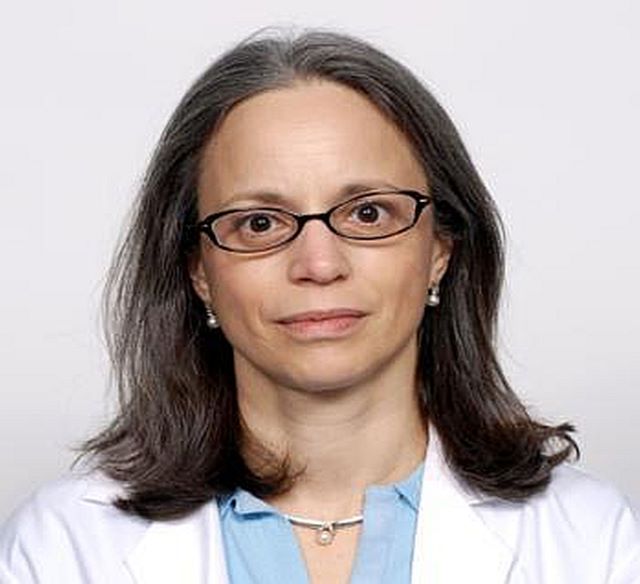 Lois Arend, M.D., Ph.D., associate professor of pathology, has been elected president of the Renal Pathology Society (RPS) for 2023. The RPS is the only professional pathology society committed to improvement and dissemination of knowledge regarding the pathology and pathophysiology of renal disease. Arend has served the RPS as treasurer (2015-19), councilor (2019-21) and vice president (2022). At Johns Hopkins Medicine, Arend directs all clinical fellowships within the pathology department, as well as the Renal Pathology Fellowship Program. She is co-director of the Renal Pathology Diagnostic Service at The Johns Hopkins Hospital and is an internationally recognized expert in kidney diseases. As RPS president, Arend will focus on efforts to support and enhance diagnostic renal pathology services in developing countries.
Lois Arend, M.D., Ph.D., associate professor of pathology, has been elected president of the Renal Pathology Society (RPS) for 2023. The RPS is the only professional pathology society committed to improvement and dissemination of knowledge regarding the pathology and pathophysiology of renal disease. Arend has served the RPS as treasurer (2015-19), councilor (2019-21) and vice president (2022). At Johns Hopkins Medicine, Arend directs all clinical fellowships within the pathology department, as well as the Renal Pathology Fellowship Program. She is co-director of the Renal Pathology Diagnostic Service at The Johns Hopkins Hospital and is an internationally recognized expert in kidney diseases. As RPS president, Arend will focus on efforts to support and enhance diagnostic renal pathology services in developing countries.

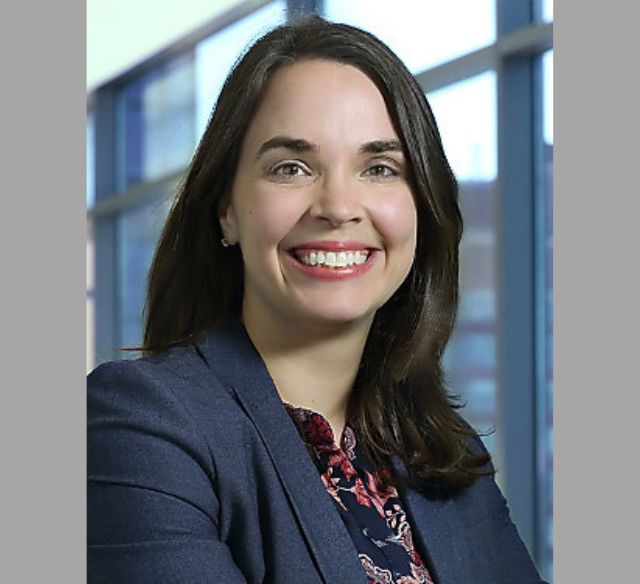
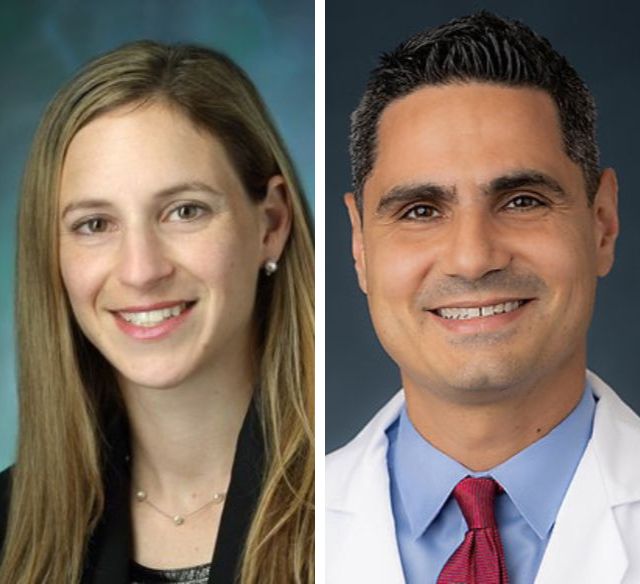 In an effort to improve diabetes care and mitigate disparities in diabetes-related outcomes, Johns Hopkins Children’s Center and Johns Hopkins Medicine researchers were awarded a $1.7 million grant from the National Institutes of Health to implement use of a diabetes navigator in the real-world clinical setting — a person who will help improve diabetes technology use in underserved communities. Type 1 diabetes requires daily management to maintain adequate glycemic control and to prevent diabetes-related complications. Use of diabetes technologies, such as continuous glucose monitors (CGMs) that track blood sugar levels, is the standard of care, and it improves glycemic control. However, CGMs are underused, particularly among minorities and underserved communities. The principal researchers are Risa Wolf, M.D., a Johns Hopkins Children’s Center pediatric endocrinologist and an associate professor of pediatrics, and Nestoras Mathioudakis, M.D., M.H.S., a Johns Hopkins Medicine adult endocrinologist and an associate professor of medicine.
In an effort to improve diabetes care and mitigate disparities in diabetes-related outcomes, Johns Hopkins Children’s Center and Johns Hopkins Medicine researchers were awarded a $1.7 million grant from the National Institutes of Health to implement use of a diabetes navigator in the real-world clinical setting — a person who will help improve diabetes technology use in underserved communities. Type 1 diabetes requires daily management to maintain adequate glycemic control and to prevent diabetes-related complications. Use of diabetes technologies, such as continuous glucose monitors (CGMs) that track blood sugar levels, is the standard of care, and it improves glycemic control. However, CGMs are underused, particularly among minorities and underserved communities. The principal researchers are Risa Wolf, M.D., a Johns Hopkins Children’s Center pediatric endocrinologist and an associate professor of pediatrics, and Nestoras Mathioudakis, M.D., M.H.S., a Johns Hopkins Medicine adult endocrinologist and an associate professor of medicine.